Our Rules
SIAC Rules 2025
Arbitration Rules of the Singapore International Arbitration Centre SIAC Rules 7th Edition, 1 January 2025
| 1.1 | Where the parties have agreed by contract or otherwise to refer their disputes to SIAC for arbitration or to arbitration in accordance with the SIAC Rules, the parties shall be deemed to have agreed that the arbitration shall be conducted pursuant to and administered by SIAC in accordance with these Rules. |
| 1.2 | These Rules shall apply to domestic and international arbitrations commenced under a contract, treaty, or other instrument. |
| 1.3 | These Rules shall include the Schedules attached thereto which shall form part of the Rules and shall be read together as appropriate. |
| 1.4 | The Registrar may from time to time issue Practice Notes as guidance to supplement and implement these Rules. |
| 1.5 | These Rules shall come into force on 1 January 2025 and, unless otherwise agreed by the parties, shall apply to any arbitration which is commenced on or after that date. |
| 1.6 | These Rules shall govern the conduct and administration of the arbitration, except that, where any such rule is in conflict with any provision of law applicable to the arbitration from which the parties cannot derogate, that provision shall prevail. |
2.1 Terms used in these Rules shall be defined as follows:
| additional party | A party who is the subject of an application for joinder in accordance with Rule 18 |
| amount in dispute | The aggregate of any claim, counterclaim, cross-claim or set-off filed in the arbitration which quantum is determined by the Registrar for the purpose of SIAC’s administration of the arbitration |
| award | Includes an interim, interlocutory, consent, partial, final or additional award and an award of an Emergency Arbitrator |
| Challenge Filing Fee | The applicable fee to file a Notice of Challenge in accordance with Rule 27.1 and the Schedule of Fees |
| Claim Filing Fee | The applicable fee to file a Notice of Arbitration in accordance with Rule 6.3(i) and the Schedule of Fees |
| Claimant | A party initiating recourse to arbitration under these Rules and which may include one or more claimants |
| Code of Ethics | SIAC’s Code of Ethics for Arbitrators in force at the date of commencement of the arbitration |
| Committee of the SIAC Court | A Committee consisting of not fewer than two members of the SIAC Court |
| Direct Economic Interest | Means an interest in the arbitration proceedings resulting from the provision by a third-party funder to (i) a party in the arbitration proceedings, (ii) an affiliate of that party or (iii) a law firm representing that party, of funding for, or indemnity against the award to be rendered in the arbitration proceedings, either individually or as part of a specific range of cases where such provision of support or financing is provided in exchange for either remuneration or reimbursement that is wholly or partially dependent on the outcome of the arbitration proceedings |
| EA Filing Fee | The applicable fee to file an application for the appointment of an Emergency Arbitrator in accordance with Rule 12.1, Schedule 1, and the Schedule of Fees |
| Emergency Arbitrator or EA | An Emergency Arbitrator appointed in accordance with Rule 12.1 and paragraph 7 or paragraph 26 of Schedule 1 |
| Filing Fees | Include the Challenge Filing Fee, Claim Filing Fee, EA Filing Fee, Joinder Filing Fee, and any other applicable filing fee in accordance with the Schedule of Fees |
| Joinder Filing Fee | The applicable fee to file an application for joinder in accordance with Rule 18 and the Schedule of Fees |
| Notice | A Notice of Arbitration, including all accompanying documents, filed in accordance with Rule 6 |
| party or parties | Include the Claimant, Respondent, and any Additional Party |
| Practice Notes | The Practice Notes published by the Registrar as guidance to supplement and implement these Rules, in force at the date of commencement of the arbitration |
| President | The President of the SIAC Court |
| Registrar | The Registrar of the SIAC Court and includes any Deputy Registrar |
| Respondent | A party against whom a Claimant seeks recourse to arbitration under these Rules and includes one or more respondents |
| Response | A Response to the Notice, including all accompanying documents, filed in accordance with Rule 7 |
| Rules | Arbitration Rules of the Singapore International Arbitration Centre (7th Edition, 1 January 2025) |
| Schedule of Fees | The SIAC Schedule of Fees in force at the date of commencement of the arbitration |
| Schedules | Schedules 1, 2, and 3 of these Rules and any additional schedules as may be published by SIAC from time to time |
| seat of the arbitration | The seat, meaning the legal place, of the arbitration |
| SIAC | The Singapore International Arbitration Centre |
| SIAC Board | The Board of Directors of SIAC |
| SIAC Court | The Court of Arbitration of SIAC |
| SIAC Gateway | The case management system hosted by SIAC and accessible at the website of SIAC |
| SIAC Secretariat | The case management and administration team of SIAC |
| SIAC-SIMC AMA Protocol | The SIAC-SIMC Arbitration-Mediation-Arbitration Protocol |
| SIMC | The Singapore International Mediation Centre |
| Tribunal | Refers to a panel of one or more arbitrators appointed in the arbitration |
| third-party funder | Refers to any person, either legal or natural, who is not a party to the arbitration proceedings but who has a Direct Economic Interest in the outcome of the arbitration proceedings |
| third-party funding agreement | Means an agreement between a third-party funder and a party, an affiliate of that party, or a law firm representing that party |
| Vice President | One or more Vice Presidents of the SIAC Court |
| written communications | Include notices, and any notification, communication or proposal, data messages, electronic communications, applications, pleadings, witness statements, expert reports, decisions, rulings, orders, awards, and other correspondence and documents that are produced, submitted, or exchanged in the arbitration |
| 3.1 | Rule headings are for reference only and are not to be used for the purpose of interpretation. |
| 3.2 | Any singular noun shall be understood to refer to the plural in appropriate circumstances and vice versa. |
| 3.3 | Save as may relate to powers exercisable by the Tribunal, the Registrar shall have the power to interpret any provision under these Rules. |
| 3.4 | Prior to the constitution of the Tribunal or the appointment of an Emergency Arbitrator, the Registrar shall determine the acceptance and ordering of any procedural applications. |
| 3.5 | In all matters not expressly provided for in these Rules, the SIAC Court, the President, the Vice President, the Registrar, the SIAC Secretariat, and any Emergency Arbitrator and Tribunal shall act in the spirit of these Rules and shall endeavour to ensure: (a) the fairness of the proceedings; (b) the expeditious and cost-effective conduct of the arbitration proportionate to the complexity of the claim and the amount in dispute; and (c) the enforceability of any award. |
| 3.6 | The parties shall attempt to agree on any procedural matters not expressly provided for in these Rules, taking into account the principles set out at Rule 3.5(a) - Rule 3.5(c), before seeking a decision from the SIAC Secretariat or the Tribunal on such matters. |
| 3.7 | In the event of any discrepancy or inconsistency between the English version of these Rules and any other languages in which these Rules are published, the English version shall prevail. |
| 4.1 | Unless otherwise required under these Rules, the parties shall deliver all written communications to all parties, the Tribunal, and the SIAC Secretariat in accordance with Rule 4.3 or Rule 4.4. Such written communications may be delivered by any means of communication that provides or allows for a record of transmission, including by hand, registered mail or courier service, email, or any other means which provides a record of the attempt to deliver it. |
| 4.2 | Upon notification of the commencement of the arbitration and at any stage of the arbitration thereafter, after considering the views of the parties and the Tribunal, the Registrar may direct the parties to upload all written communications to SIAC Gateway. |
| 4.3 | Any written communication shall be delivered using the contact details designated for the purpose of the arbitration by the parties or their representatives, the Tribunal, or the SIAC Secretariat, or by upload to SIAC Gateway upon the direction of the Registrar under Rule 4.2. |
| 4.4 | In the absence of such designation or direction under Rule 4.3, any written communications shall be deemed to be received if they are delivered:
(a) to the addressee personally or to its authorised representative;
(b) to the addressee’s place of business, habitual residence, or mailing address; or
(c) according to the practice of the parties in prior dealings.
If, after making a reasonable inquiry, delivery cannot be effected under (a) – (c) above, written communications shall be deemed to be received if they are delivered to the addressee’s last-known place of business, habitual residence, or mailing address. |
| 4.5 | Any application under these Rules shall be delivered to all other parties, the Tribunal, and the SIAC Secretariat with confirmation of the date and mode of delivery. |
| 4.6 | Any written communication to the parties shall be deemed to have been received by the parties on the day that it was delivered in accordance with Rule 4.3 or Rule 4.4. |
| 5.1 | For the purpose of calculating any period of time under these Rules, such period shall commence from the day following the receipt of a written communication or the deemed receipt of such written communication. Unless the Registrar or the Tribunal determines otherwise, any period of time under these Rules is to be calculated with reference to Singapore Standard Time (GMT +8). |
| 5.2 | Any statutory holidays or non-business days at the place of receipt shall be included in the calculation of any period of time under these Rules. If the last day of any period of time under these Rules is a statutory holiday or non-business day at the place of receipt, the period of time shall be extended until the first business day at the place of receipt which follows. |
| 5.3 | Except as otherwise provided in these Rules, the Registrar may at any time extend or abridge any period of time under these Rules. |
| 6.1 | The Claimant shall deliver a Notice of Arbitration to the Registrar and the Respondent. Subject to compliance with Rule 4 of these Rules, the Claimant may file the Notice online with the SIAC Secretariat through SIAC Gateway. |
| 6.2 | The date on which the Notice is received by the Registrar shall be deemed to be the date of commencement of the arbitration. The SIAC Secretariat shall notify the parties of the commencement of the arbitration. |
| 6.3 |
The Notice shall include the following:
(a) a demand that the dispute be referred to arbitration;
(b) the identity and contact details of the parties to the arbitration and their representatives, if any;
(c) the date and mode of delivery of the Notice to the Respondent;
(d) a copy or description of the arbitration agreement invoked;(e) a copy or description of the contract, treaty or other instrument out of or in connection with which the dispute arises;
(f) a statement describing the nature and circumstances of the dispute, including the relief sought and an initial estimate of the claim amount;
(g) any comment as to the applicable rules of law, seat of the arbitration, language of the arbitration, number of arbitrators, and procedure for the constitution of the Tribunal;
(h) a statement on the existence of any third-party funding agreement and the identity and contact details of the third-party funder; and
(i) payment of the Claim Filing Fee. |
| 6.4 | The Notice may include:
(a) any comment on the adoption of amicable dispute resolution methods such as mediation under the SIAC SIMC AMA Protocol for the settlement of all or part of the dispute; and
(b) the Statement of Claim in accordance with Rule 33.2. |
| 6.5 | The Registrar shall determine whether the Notice complies or substantially complies with the requirements under Rule 6.3. |
| 6.6 | If the Registrar determines that the Notice does not comply or substantially comply with any of the requirements under Rule 6.3, or the Claim Filing Fee is not paid upon the filing of the Notice, the Registrar may set a period of time for the Claimant to remedy the deficiency in the Notice or to make payment of the Claim Filing Fee. If the Claimant fails to do so within the period of time set by the Registrar, the Registrar may terminate the arbitration without prejudice to the Claimant filing a Notice in another proceeding. |
| 7.1 | The Respondent shall deliver a Response to the Notice to the Registrar and the Claimant within 14 days from the date of commencement of the arbitration or the date of the Respondent’s receipt of the Notice, whichever is later. The Response shall include the following:
(a) the identity and contact details of the Respondent and its representatives;
(b) the date and mode of delivery of the Response to the Claimant;
(c) a brief statement describing the nature and circumstances of the dispute and a confirmation or denial of all or part of the claims;
(d) any objection to jurisdiction under Rule 8.1 and/or Rule 31.2;
(e) a statement describing the nature and circumstances of any counterclaim, cross-claim, or set-off, including the relief claimed and an initial estimate of the claim amount;
(f) any comment as to the applicable rules of law, seat of the arbitration, language of the arbitration, number of arbitrators, and procedure for the constitution of the Tribunal; and
(g) a statement on the existence of any third-party funding agreement and the identity and contact details of the third-party funder. |
| 7.2 | If the Claimant has filed a Statement of Claim with the Notice pursuant to Rule 6.4, the Respondent may, but is not required to, include a Statement of Defence and Statement of Counterclaim in accordance with Rule 33.3. |
| 7.3 | The Response may include any comment on the adoption of amicable dispute resolution methods such as mediation under the SIAC-SIMC AMA Protocol for the settlement of all or part of the dispute. |
| 7.4 | The failure of the Respondent to submit its Response will not prevent the SIAC Court, the President, the Vice President, the Registrar, or the SIAC Secretariat from making any decision under these Rules and proceeding with the administration of the arbitration. |
| 8.1 | If the Respondent fails to submit a Response, or any party objects to the existence, validity, or applicability of the arbitration agreement, the arbitration shall proceed and any question of jurisdiction shall be determined by the Tribunal unless the Registrar determines, prior to the constitution of the Tribunal, that the matter shall be referred to the SIAC Court for a prima facie determination under Rule 8.2. |
| 8.2 | Where the Registrar refers a matter to the SIAC Court under Rule 8.1, the SIAC Court shall determine, on a prima facie basis, whether and to what extent the arbitration shall proceed. Any decision by the Registrar or the SIAC Court that the arbitration shall proceed is without prejudice to the power of the Tribunal to rule on its own jurisdiction. |
| 8.3 | In the event that the SIAC Court determines that the arbitration shall not proceed, in whole or in part, the Registrar shall terminate the arbitration in accordance with the decision of the SIAC Court. |
| 9.1 | Prior to the constitution of the Tribunal, a party may amend, modify, or supplement the Notice, the Response, or any procedural application under these Rules with the leave of the Registrar. |
| 10.1 | A party may be self-represented or represented or assisted by any person of its choice, including legal counsel, advocates, agents, or any other authorised representatives, subject to any applicable law. |
| 10.2 | Prior to the constitution of the Tribunal, the Registrar may direct any party representative to provide proof of authority in a form to be determined by the Registrar. Any question as to the validity of this proof of authority shall ultimately be determined by the Tribunal. |
| 10.3 | Prior to the constitution of the Tribunal, any change or addition by a party to its representatives must be communicated to the Registrar and the other parties. |
| 10.4 | After the constitution of the Tribunal, the Tribunal may direct any party representative to provide proof of authority in a form to be determined by the Tribunal. |
| 10.5 | After the constitution of the Tribunal, any change by a party to its representatives must be first proposed to the Tribunal. The Tribunal may, after considering the views of the parties, allow the proposed change of representatives. The Tribunal may withhold approval of any proposed change to a party’s representatives where such change could compromise the composition of the Tribunal or the integrity of the proceedings. In considering such a proposal, the Tribunal shall take into account, inter alia, the general principle that a party may be represented by a representative of its choice, the stage which the arbitration has reached, and the efficiency likely to result from maintaining the composition of the Tribunal. |
| 11.1 | Prior to the constitution of the Tribunal, the Registrar may, at his or her discretion, conduct administrative conferences with the parties to discuss any procedural or administrative directions to be made by the Registrar under these Rules. The administrative conference may be conducted by videoconference, teleconference, or any other form of electronic communication. |
| 12.1 | Prior to the constitution of the Tribunal, a party may apply for the appointment of an Emergency Arbitrator in accordance with the procedure set out in Schedule 1. |
| 13.1 | The arbitration shall be conducted in accordance with the Streamlined Procedure set out in Schedule 2 where:
(a) the parties have agreed to the application of the Streamlined Procedure prior to the constitution of the Tribunal; or
(b) the amount in dispute in the arbitration does not exceed the equivalent amount of S$1,000,000 prior to the constitution of the Tribunal, unless the President determines upon application of a party that the Streamlined Procedure shall not apply to the arbitration. |
| 13.2 | The SIAC Secretariat shall inform the parties where the arbitration is to be conducted in accordance with the Streamlined Procedure pursuant to Rule 13.1. |
| 13.3 | The parties may agree to exclude the application of this Rule 13, by agreement in writing. |
| 14.1 | The arbitration shall be conducted in accordance with the Expedited Procedure set out in Schedule 3 where the parties have agreed to the application of the Expedited Procedure prior to the constitution of the Tribunal. Unless the parties have agreed to a previous edition of the SIAC Rules, any agreement by the parties to the application of the Expedited Procedure under a previous rule reference shall be deemed to be an agreement for the application of the Expedited Procedure for the purpose of this rule. |
| 14.2 | At the time of filing the Notice or the Response, or at any time prior to the constitution of the Tribunal, a party may file an application with the Registrar for the arbitration to be conducted in accordance with the Expedited Procedure where:
(a) at the time of the application, the amount in dispute does not exceed the equivalent amount of S$10,000,000 but exceeds the equivalent amount of S$1,000,000;
(b) at the time of the application, the amount in dispute does not exceed the equivalent amount of S$1,000,000 and the President has determined under Rule 13.1(b) that the Streamlined Procedure shall not apply to the arbitration; or
(c) the circumstances of the case warrant the application of the Expedited Procedure. |
| 14.3 | The President shall, after considering the views of the parties, determine whether to grant an application under Rule 14.2. Where the President grants the application, the Expedited Procedure set out in Schedule 3 shall apply. |
| 14.4 | The parties may agree to exclude the application of this Rule 14, by agreement in writing. |
| 15.1 | Where disputes arise out of or in connection with more than one arbitration agreement, the Claimant shall:
(a) file a separate Notice in respect of each arbitration agreement invoked;
(b) file a separate Notice in respect of each arbitration agreement invoked and concurrently submit an application to consolidate the arbitrations in accordance with Rule 16.1; or
(c) file a single Notice in respect of all the arbitration agreements invoked and the Notice shall be deemed to be an application to consolidate all such arbitrations in accordance with Rule 16.1. In addition to the requirements under Rule 6.3, the Notice shall include a statement identifying the relevant contracts and the claims arising out of or in connection with each arbitration agreement invoked. |
| 15.2 | Subject to compliance with Rule 6.3, the Claimant shall be deemed to have commenced multiple arbitrations, one in respect of each arbitration agreement invoked, and the Registrar shall assign a separate case reference for each arbitration agreement invoked. |
| 15.3 | Where the Claimant has filed the Notices pursuant to Rule 15.1(b), the Registrar shall accept payment of a single Claim Filing Fee for all the arbitrations sought to be consolidated. If the SIAC Court rejects the application for consolidation under Rule 16.4, in whole or in part, the Claimant shall be required to make payment of the Claim Filing Fee in respect of each case reference that was not consolidated. |
| 15.4 | Where the Claimant has filed a single Notice pursuant to Rule 15.1(c), the Registrar shall accept payment of a single Claim Filing Fee for all the arbitrations sought to be consolidated. If the SIAC Court rejects the application for consolidation under Rule 16.4, in whole or in part, the Claimant shall file a Notice in accordance with Rule 6 and make payment of the Claim Filing Fee in respect of each case reference that was not consolidated. |
| 16.1 | Prior to the constitution of any Tribunal in the arbitrations sought to be consolidated, a party may file an application with the Registrar to consolidate two or more arbitrations filed under Rule 15.1, or otherwise pending under these Rules, into a single arbitration where:
(a) all parties have agreed to the consolidation;
(b) all the claims, counterclaims, and cross-claims in the arbitrations are made under the same arbitration agreement; or
(c) the arbitration agreements are compatible, and: (i) the disputes arise out of or in connection with the same legal relationship(s); (ii) the disputes arise out of or in connection with contracts consisting of a principal contract and its ancillary contract(s); or (iii) the disputes arise out of or in connection with the same transaction or series of transactions. |
| 16.2 | An application for consolidation under Rule 16.1 shall include:
(a) the date and mode of delivery of the application on all parties and any appointed arbitrators;
(b) the case reference numbers of the arbitrations sought to be consolidated, where available;
(c) the identity and contact details of the parties and their representatives, and any arbitrators who have been nominated or appointed in the arbitrations sought to be consolidated;
(d) the information specified in Rule 6.3(d) and Rule 6.3(e);
(e) a statement on the existence of any third-party funding agreement in respect of the arbitrations sought to be consolidated and the identity and contact details of the third-party funder; and
(f) a statement of the facts and legal basis supporting the application. |
| 16.3 | The Registrar may order a stay of any of the arbitrations sought to be consolidated pending the decision of the SIAC Court on the application for consolidation. |
| 16.4 | The SIAC Court shall, after considering the views of the parties, decide whether to grant, in whole or in part, an application for consolidation under Rule 16.1. Where an application for consolidation is made under Rule 16.1(a) by agreement of all parties, the President shall decide the application and the decision of the President shall be deemed to be a decision of the SIAC Court. |
| 16.5 | The SIAC Court’s decision to grant an application for consolidation under Rule 16.4 is without prejudice to the Tribunal’s power to subsequently decide any question as to its jurisdiction arising from such decision. The SIAC Court’s decision to reject an application for consolidation under Rule 16.4 is without prejudice to any party’s right to apply to the Tribunal for consolidation pursuant to Rule 16.8. Any arbitrations that are not consolidated shall continue as separate arbitrations. |
| 16.6 | Where the SIAC Court decides to consolidate two or more arbitrations under Rule 16.4, the arbitrations shall be consolidated into the arbitration that is deemed by the Registrar to have commenced first, unless otherwise agreed by all parties or the SIAC Court decides otherwise. For the purpose of the administration of the consolidated arbitration, the SIAC Court will designate the parties in the consolidated arbitration as claimant(s) and respondent(s). |
| 16.7 | Where an application for consolidation is granted under Rule 16.4, the President may, after considering the views of the parties, revoke the appointment of any arbitrators who were appointed prior to the SIAC Court’s decision on consolidation. Unless the Registrar determines otherwise, the appointment provisions under these Rules shall apply as appropriate, and any timelines thereunder shall run from the date of receipt of the SIAC Court’s decision under Rule 16.4. |
| 16.8 | After the constitution of a Tribunal in any of the arbitrations sought to be consolidated, a party may apply to the Tribunal to consolidate two or more arbitrations pending under these Rules into a single arbitration where:
(a) all parties have agreed to the consolidation;
(b) all the claims, counterclaims, and cross-claims in the arbitrations are made under the same arbitration agreement, and the same Tribunal has been constituted in each of the arbitrations or no Tribunal has been constituted in the other arbitration(s); or
(c) the arbitration agreements are compatible, the same Tribunal has been constituted in each of the arbitrations or no Tribunal has been constituted in the other arbitration(s), and: (i) the disputes arise out of or in connection with the same legal relationship(s); (ii) the disputes arise out of or in connection with contracts consisting of a principal contract and its ancillary contract(s); or (iii) the disputes arise out of or in connection with the same transaction or series of transactions. |
| 16.9 | Subject to any specific directions of the Tribunal, the provisions of Rule 16.2 shall apply, mutatis mutandis, to an application for consolidation under Rule 16.8. |
| 16.10 | The Tribunal shall, after giving all parties the opportunity to be heard, decide whether to grant, in whole or in part, an application for consolidation under Rule 16.8. The Tribunal’s decision to grant an application for consolidation under this Rule 16.10 is without prejudice to the Tribunal’s power to subsequently decide any question as to its jurisdiction arising from such decision. Any arbitrations that are not consolidated shall continue as separate arbitrations. |
| 16.11 | Where an application for consolidation is granted under Rule 16.10, the President may, after considering the views of the parties, revoke the appointment of any arbitrators who were appointed prior to the Tribunal’s decision on consolidation. |
| 16.12 | The President’s decision to revoke the appointment of any arbitrator under Rule 16.7 or Rule 16.11 is without prejudice to the validity of any act done or any decision, ruling, order, or award made by the arbitrator before his or her appointment was revoked. |
| 16.13 | Where an application for consolidation is granted under Rule 16.4 or Rule 16.10, any party which did not have the opportunity to nominate an arbitrator or otherwise participate in the constitution of the Tribunal shall be deemed to have waived any such right, without prejudice to the right of such party to challenge an arbitrator pursuant to Rule 26. |
| 17.1 | Where the same Tribunal is constituted in two or more arbitrations, and a common question of law or fact arises out of or in connection with all the arbitrations, a party to the arbitrations may apply to the Tribunal for the arbitrations to be coordinated such that:
(a) the arbitrations shall be conducted concurrently or sequentially;
(b) the arbitrations shall be heard together and any procedural aspects shall be aligned; or
(c) any of the arbitrations shall be suspended pending a determination in any of the other arbitrations. |
| 17.2 | The Tribunal shall determine the application under Rule 17.1 after giving all parties to the arbitrations an opportunity to be heard and having regard to the obligations of confidentiality under Rule 59. |
| 17.3 | Unless otherwise agreed by the parties, any coordinated arbitrations shall remain separate proceedings, and the Tribunal shall issue separate decisions, rulings, orders, and awards in each arbitration. |
| 18.1 | At the time of filing the Notice or the Response, or at any time prior to the constitution of the Tribunal, a party or non-party to the arbitration may file an application with the Registrar for the joinder of one or more additional parties to an arbitration pending under these Rules as a claimant or a respondent (each, an “additional party”) where:
(a) all parties, including the additional party, have agreed to the joinder of the additional party; or
(b) the additional party is prima facie bound by the arbitration agreement. |
| 18.2 | An application for joinder under Rule 18.1 shall include:
(a) the date and mode of delivery of the application to all parties, including the additional party;
(b) the case reference number of the pending arbitration;
(c) the identity and contact details of all parties, including the additional party, and their representatives;
(d) submissions on whether the additional party shall be designated as a claimant or a respondent;
(e) the information specified in Rule 6.3(d) and Rule 6.3(e);
(f) a statement on the existence of a third-party funding agreement in respect of any party including the additional party, and the identity and contact details of the third-party funder;
(g) a statement of the facts and legal basis supporting the application; and
(h) payment of the Joinder Filing Fee. |
| 18.3 | The Registrar shall determine whether the application for joinder complies or substantially complies with the requirements under Rule 18.2. The SIAC Secretariat shall notify all parties, including the additional party, when the application for joinder is complete. |
| 18.4 | If the Registrar determines that the application for joinder does not comply or substantially comply with any of the requirements under Rule 18.2, or if the Joinder Filing Fee is not paid upon the filing of the application, the Registrar may set a period of time for the deficiency in the application to be remedied. If the applicant fails to do so within the period of time set by the Registrar, the Registrar may deem the application to be withdrawn on a without prejudice basis. |
| 18.5 | The SIAC Court shall, after considering the views of all parties, including the additional party, decide whether to grant, in whole or in part, an application for joinder under Rule 18.1. Where an application for joinder is made under Rule 18.1(a) by agreement of all parties (including the additional party), the President shall decide the application and the decision of the President shall be deemed to be a decision of the SIAC Court. |
| 18.6 | The SIAC Court’s decision to grant an application for joinder under Rule 18.5 is without prejudice to the Tribunal’s power to subsequently decide any question as to its jurisdiction arising from such decision. The SIAC Court’s decision to reject an application for joinder under Rule 18.5 is without prejudice to any party’s or non-party’s right to apply to the Tribunal for joinder in accordance with Rule 18.10. |
| 18.7 | Where an application for joinder is granted under Rule 18.5, the date of receipt by the Registrar of the complete joinder application shall be deemed to be the date of commencement of the arbitration in respect of the additional party. |
| 18.8 | Where an application for joinder is granted under Rule 18.5, the President may revoke the appointment of any arbitrators who were appointed prior to the SIAC Court’s decision on joinder. Unless the Registrar determines otherwise, the appointment provisions under these Rules shall apply as appropriate, and any timelines thereunder shall run from the date of receipt of the SIAC Court’s decision under Rule 18.5. |
| 18.9 | The President’s decision to revoke the appointment of any arbitrator under Rule 18.8 is without prejudice to the validity of any act done or any decision, ruling, order, or award made by the arbitrator before his or her appointment was revoked. |
| 18.10 | After the constitution of the Tribunal, a party or non-party to the arbitration may apply to the Tribunal for the joinder of one or more additional parties to an arbitration pending under these Rules as a claimant or a respondent (each, an “additional party”) where: (a) all parties, including the additional party, have agreed to the joinder of the additional party; or (b) the additional party is prima facie bound by the arbitration agreement. |
| 18.11 | Subject to any specific directions of the Tribunal, the provisions of Rule 18.2 shall apply, mutatis mutandis, to an application for joinder under Rule 18.10. Where appropriate, an application to the Tribunal under Rule 18.10 may be filed with the Registrar who shall deliver the application to the Tribunal. |
| 18.12 | The Tribunal shall, after giving all parties, including the additional party, the opportunity to be heard, decide whether to grant, in whole or in part, an application for joinder under Rule 18.10. |
| 18.13 | The Tribunal’s decision to grant an application for joinder under Rule 18.12 is without prejudice to the Tribunal’s power to subsequently decide any question as to its jurisdiction arising from such decision. |
| 18.14 | Where an application for joinder is granted under Rule 18.12, the date of receipt by the Registrar or the Tribunal, as the case may be, of the complete joinder application shall be deemed to be the date of commencement of the arbitration in respect of the additional party. |
| 18.15 | Where an application for joinder is granted, in whole or in part, under Rule 18.5 or Rule 18.12, any party which did not have the opportunity to nominate an arbitrator or otherwise participate in the constitution of the Tribunal shall be deemed to have waived any such right, without prejudice to the right of such party to challenge an arbitrator pursuant to Rule 26. |
| 18.16 | Where an application for joinder is granted under Rule 18.5 or Rule 18.12, the parties and additional party may make claims, counterclaims, cross-claims, or set-offs against any other party in accordance with the provisions set out in Rule 6 and Rule 7. |
| 19.1 | Unless otherwise agreed by the parties, the Tribunal shall comprise one or three arbitrators. In the event that the parties have not agreed on the number of arbitrators, a sole arbitrator shall be appointed unless the Registrar determines, after considering the views of the parties, that the dispute warrants the appointment of three arbitrators. |
| 19.2 | If the parties have agreed that an arbitrator is to be appointed by any or all of the parties, the arbitrators already appointed, or any third person, body or organisation, that agreement shall be deemed an agreement to nominate an arbitrator under these Rules and shall be subject to appointment by the President in accordance with Rule 19.4. |
| 19.3 | The President may appoint any arbitrator whose appointment has been suggested or proposed by any or all of the parties, the arbitrators already appointed, or any third person, body or organisation. |
| 19.4 | In all cases, any arbitrator nominated by any or all of the parties, the arbitrators already appointed, or any third person, body or organisation, shall be subject to appointment by the President. The President may, after considering the views of the parties, the arbitrators already appointed, or the relevant third person, body or organisation, refuse to appoint any arbitrator under this Rule 19.4. |
| 19.5 | In appointing an arbitrator under these Rules, the President shall take into account any agreed qualifications and such considerations that are relevant to the impartiality or independence of the arbitrator. |
| 19.6 | The President shall consider whether the arbitrator has sufficient availability to conduct the arbitration in a prompt and efficient manner appropriate to the nature of the dispute. |
| 19.7 | Where the parties are of different nationalities, the President shall appoint a sole arbitrator or a presiding arbitrator of a different nationality than the parties, unless the parties have otherwise agreed or the President determines it to be appropriate otherwise, taking into account any proposals by the parties and the circumstances of the case. |
| 19.8 | The Registrar may, after considering the views of the parties, extend any timelines for appointment prescribed under these Rules or otherwise agreed by the parties. |
| 19.9 | If, under the terms of an appointment procedure agreed by the parties, the appointment cannot be effected on those terms, the President shall appoint the arbitrator(s). |
| 19.10 | If, under the terms of an appointment procedure agreed by the parties, there is a substantial risk of unequal treatment that may risk affecting the validity or enforceability of the award, the President may, after considering the views of the parties, take any necessary measure to constitute an independent and impartial Tribunal. In such case, each party shall be deemed to have waived any right to nominate an arbitrator or otherwise participate in the constitution of the Tribunal, and the President may revoke the appointment of any arbitrators. |
| 19.11 | The terms of appointment of each arbitrator shall be fixed by the Registrar in accordance with these Rules and the Practice Notes for the time being in force. Prior to the constitution of the Tribunal, the parties may agree to alternative methods of determining the Tribunal’s fees. No change to the method of determining the Tribunal’s fees will be allowed after the constitution of the Tribunal. |
| 19.12 | The Tribunal shall be deemed to be constituted on the date so notified by the SIAC Secretariat to the parties. |
| 19.13 | Any decision by the President or the Registrar on appointment shall be final and not subject to appeal. |
| 20.1 | All arbitrators appointed under these Rules shall be and shall remain at all times independent and impartial, and conduct themselves in accordance with these Rules, SIAC’s Code of Ethics and the Practice Notes for the time being in force. All arbitrators appointed under these Rules must sign a Statement of Acceptance, Independence, Impartiality, and Availability. |
| 20.2 | Prior to their appointment, prospective arbitrators shall disclose in writing to the Registrar any circumstances which may give rise to justifiable doubts as to their impartiality or independence and indicate if they do not possess any qualifications agreed by the parties. |
| 20.3 | After their appointment, arbitrators have a continuing obligation to immediately disclose in writing to the Registrar, the parties, and the other arbitrators any circumstances which may give rise to justifiable doubts as to their impartiality or independence. |
| 21.1 | Where a sole arbitrator is to be appointed, the parties may jointly nominate the sole arbitrator within 21 days from the date of commencement of the arbitration or within the period of time otherwise agreed by the parties or set by the Registrar. |
| 21.2 | If the parties are not able to jointly nominate the sole arbitrator within 21 days from the date of commencement of the arbitration or within the period of time otherwise agreed by the parties or set by the Registrar, the President shall appoint the sole arbitrator. |
| 22.1 | Where three arbitrators are to be appointed, the Claimant shall nominate an arbitrator within 14 days from the date of commencement of the arbitration or within the period of time otherwise agreed by the parties or set by the Registrar, and the Respondent shall nominate an arbitrator within 14 days of the receipt of the Claimant’s nomination of an arbitrator or within the period of time otherwise agreed by the parties or set by the Registrar. |
| 22.2 | If a party fails to nominate an arbitrator within the timelines under Rule 22.1, the President shall appoint an arbitrator on its behalf. |
| 22.3 | The presiding arbitrator shall be appointed by the President, unless the parties have agreed upon another procedure for the nomination of the presiding arbitrator or if such agreed procedure does not result in a nomination of the presiding arbitrator within the period agreed by the parties or set by the Registrar. |
| 23.1 | Where there are more than two parties to the arbitration and three arbitrators are to be appointed, the Claimant(s) shall jointly nominate an arbitrator and the Respondent(s) shall jointly nominate an arbitrator within 28 days from the date of commencement of the arbitration or within the period of time otherwise agreed by the parties or set by the Registrar. The presiding arbitrator shall be appointed in accordance with Rule 22.3. |
| 23.2 | In the absence of joint nominations from both the Claimant(s) and the Respondent(s) having been made within 28 days from the date of commencement of the arbitration or within the period otherwise agreed by the parties or set by the Registrar, the President shall appoint all three arbitrators and designate the presiding arbitrator. |
| 24.1 | In accordance with this Rule 24 and the Practice Notes for the time being in force:
(a) the Tribunal may, after considering the views of the parties and in consultation with the Registrar, appoint a Tribunal Secretary; or
(b) the Tribunal may, after considering the views of the parties and with the approval of the Registrar, appoint a member of the SIAC Secretariat as a Tribunal Secretary. |
| 24.2 | The duties of disclosure under Rule 20 shall apply, mutatis mutandis, to the appointment of any Tribunal Secretary. |
| 24.3 | The Tribunal shall not delegate any of its decision-making functions to the Tribunal Secretary. All tasks carried out by the Tribunal Secretary shall be carried out on behalf of, and under the supervision of, the Tribunal. |
| 24.4 | A Tribunal Secretary may be removed by the Tribunal. Where a member of the SIAC Secretariat is appointed as a Tribunal Secretary, the Tribunal shall consult with the Registrar before removing the Tribunal Secretary. |
| 24.5 | A party who wishes to challenge a Tribunal Secretary shall file a Notice of Challenge within 7 days from the date of the notice of appointment of the Tribunal Secretary or within 7 days from the date that the circumstances specified in Rule 26.1 which apply herein mutatis mutandis, became known or should have reasonably been known to that party. |
| 24.6 | Any challenge to the Tribunal Secretary shall be decided by the President after considering the views of the parties, the challenged Tribunal Secretary, and the Tribunal. The President shall not be required to provide reasons for the decision. The President’s decision on any challenge to a Tribunal Secretary shall be final and not subject to appeal under these Rules. |
| 24.7 | In the event of the death, incapacity, resignation, withdrawal, or removal of a Tribunal Secretary during the course of the arbitration, a substitute Tribunal Secretary may be appointed in accordance with the procedure set out in Rule 24.1 and the Practice Notes for the time being in force. |
| 24.8 | The Tribunal shall determine the terms of appointment of the Tribunal Secretary in accordance with the Practice Notes for the time being in force and after considering the views of the parties. |
| 25.1 | All communications from the parties to the Tribunal shall be made in accordance with Rule 4 and any relevant direction by the Tribunal. |
| 25.2 | Prior to the constitution of the Tribunal, a party or its representative shall not engage in any ex parte communications relating to the arbitration with any prospective arbitrator, including any candidate for appointment as a party-nominated arbitrator, except to:
(a) discuss the general nature of the dispute and of the anticipated proceedings;
(b) discuss the candidate’s qualifications, availability, or independence, in respect of the prospective appointment; or
(c) discuss the suitability of candidates for selection as the presiding arbitrator where the parties or party-nominated arbitrators are, by agreement of the parties, to participate in that process.
A party or its representative shall not engage in any ex parte communications relating to the arbitration with any candidate for presiding arbitrator. |
| 25.3 | After the constitution of the Tribunal, a party or its representative shall not engage in any ex parte communications relating to the arbitration with any arbitrator. |
| 26.1 | An arbitrator may be challenged if:
(a) circumstances exist that give rise to justifiable doubts as to the arbitrator’s impartiality or independence;
(b) the arbitrator does not possess any requisite qualification on which the parties have agreed; or
(c) the arbitrator becomes de jure or de facto unable to perform his or her functions. |
| 26.2 | A party may challenge its nominated arbitrator under Rule 26.1 only for reasons of which the party becomes aware after the appointment has been made. |
| 27.1 | A party who wishes to challenge an arbitrator shall file a notice of challenge with the Registrar:
(a) within 15 days from the date of receipt of the notice of appointment of the arbitrator who is being challenged; or
(b) within 15 days from the date that the reasons specified in Rule 26.1 became known or should have reasonably been known to that party. |
| 27.2 | The notice of challenge shall include a statement of the facts and legal basis supporting the challenge and shall include payment of the Challenge Filing Fee in accordance with the Schedule of Fees. The date of receipt of the notice of challenge by the Registrar shall be deemed to be the date the notice of challenge is filed. |
| 27.3 | If the Challenge Filing Fee is not paid upon the filing of the application, the Registrar may set a period of time for the challenging party to make payment. If payment is not made within this period of time, the Registrar may deem the application to be withdrawn on a without prejudice basis. |
| 27.4 | After receipt of a notice of challenge under Rule 27.1, the Registrar may order the suspension of the arbitration until the challenge is resolved. Unless the Registrar orders the suspension of the arbitration pursuant to this Rule 27.4, the challenged arbitrator shall be entitled to continue to participate in the arbitration pending the determination of the challenge by the SIAC Court in accordance with Rule 28. |
| 27.5 | If within seven (7) days from the date the notice of challenge is filed, all other parties agree to the challenge or the challenged arbitrator voluntarily withdraws from office, the SIAC Court may direct that a substitute arbitrator be appointed in accordance with Rule 30.1. In neither case does this imply acceptance of the validity of the grounds for the challenge. |
| 28.1 | If the challenge is not resolved in accordance with Rule 27.5, the SIAC Court shall decide the challenge after considering the views of the parties, the challenged arbitrator, and any appointed arbitrators. |
| 28.2 | If the SIAC Court accepts the challenge, the SIAC Court shall remove the arbitrator, and a substitute arbitrator shall be appointed in accordance with Rule 30.1. |
| 28.3 | If the SIAC Court rejects the challenge, the challenged arbitrator shall continue with the arbitration. |
| 28.4 | The SIAC Court’s decision on the challenge to an arbitrator under this Rule 28 shall be reasoned and shall be delivered by the SIAC Secretariat to the parties, the challenged arbitrator, and the Tribunal or any appointed arbitrators. |
| 28.5 | The SIAC Court’s decision on the challenge shall be final and not subject to appeal under these Rules. |
| 28.6 | If a challenge is filed against an arbitrator who is a member of the SIAC Board or the SIAC Court, a Committee of the SIAC Court shall be constituted to decide the challenge which shall include one member who is not a member of the SIAC Board or the SIAC Court. |
| 28.7 | The parties shall be deemed to have agreed that SIAC may publish any decision of the SIAC Court on a challenge, with the names of the parties and all other identifying information redacted. |
| 29.1 | The SIAC Court may remove an arbitrator, after considering the views of the parties, the arbitrator whose removal is being considered, and the other arbitrators, if the SIAC Court determines that:
(a) the arbitrator has not complied with these Rules, the SIAC Code of Ethics, or the Practices Note for the time being in force; or
(b) the arbitrator has not conducted, or participated in, the arbitration in a manner that ensures the fair, expeditious, and economical resolution of the dispute. |
| 30.1 | Except as otherwise provided in these Rules, in the event of the death, incapacity, resignation, withdrawal, or removal of an arbitrator by the SIAC Court during the course of the arbitration, a substitute arbitrator shall be appointed in accordance with the procedure applicable to the nomination and appointment of the arbitrator being replaced. This procedure shall apply even if, during the process of appointing the arbitrator, a party failed to exercise its right to nominate an arbitrator. The time limits applicable to the nomination and appointment of the substitute arbitrator shall commence from the date of receipt by the parties of the notification of the arbitrator’s death, incapacity, resignation, withdrawal, or removal. |
| 30.2 | Where the Tribunal comprises three or more arbitrators, the SIAC Court may determine, as appropriate and after considering the views of the parties and the remaining arbitrators, that the remaining arbitrators shall proceed with the arbitration without appointing a substitute arbitrator under Rule 30.1. |
| 30.3 | If any arbitrator is replaced under these Rules, the Tribunal shall decide, after considering the views of the parties, whether any hearings held previously shall be repeated. Unless the Tribunal decides otherwise after considering the views of the parties, any hearings held previously relating solely to a decision, ruling, order, or award shall not be repeated and the decision, ruling, order, or award shall remain in effect. |
| 31.1 | The Tribunal shall have the power to rule on its own jurisdiction, including any objections with respect to the existence, validity, applicability, or scope of the arbitration agreement. An arbitration agreement which forms part of a contract shall be treated as an agreement independent of the other terms of the contract. A decision by the Tribunal that the contract is non-existent or null and void shall not entail automatically the invalidity of the arbitration agreement. |
| 31.2 | Any objection that: (a) the Tribunal does not have jurisdiction shall be raised no later than in a Statement of Defence or with respect to a counterclaim, in a Statement of Defence to a Counterclaim; or (b) the Tribunal is exceeding the scope of its jurisdiction shall be raised within 15 days from the date that the matter alleged to be beyond the scope of the Tribunal’s jurisdiction arises during the arbitration. The Tribunal may admit an objection raised by a party outside the time limits under this Rule 31.2 if it considers the delay to be justified. A party is not precluded from raising an objection under this Rule 31.2 by the fact that it has nominated, or participated in the nomination of, an arbitrator. |
| 31.3 | The Tribunal may rule on an objection referred to in Rule 31.2 either as a preliminary question or in a decision or award on the merits. |
| 32.1 | The parties and the Tribunal shall be deemed to have agreed that the arbitration is to be conducted with diligence and professionalism and further to the principles set out in Rule 3.5(a) – Rule 3.5(c). |
| 32.2 | The Tribunal shall have the power to conduct the arbitration in such manner as it considers appropriate. In exercising its procedural discretion, the Tribunal shall at all times act fairly and impartially and ensure that each party has a reasonable opportunity to present its case. |
| 32.3 | The Tribunal shall determine the admissibility, relevance, materiality, and weight of all evidence. The Tribunal is not required to apply the rules of evidence of any applicable law in making such a determination. |
| 32.4 | As soon as practicable after the constitution of the Tribunal, the Tribunal shall convene a first case management conference with the parties to discuss the procedures that will be most appropriate and efficient for the case. At the first case management conference, the Tribunal may additionally consult with the parties on: (a) the potential for the settlement of all or part of the dispute, including through the adoption of amicable dispute resolution methods such as mediation under the SIAC-SIMC AMA Protocol; and (b) whether it would be appropriate to adopt environmentally sustainable procedures for the arbitration. |
| 32.5 | Any case management conference may be conducted inperson, in hybrid form, or by videoconference, teleconference, or any other form of electronic communication. |
| 32.6 | The Tribunal shall have the power to direct and schedule the order of proceedings, bifurcate proceedings, order page limits on submissions, exclude cumulative or irrelevant testimony or other evidence and direct the parties to focus their presentations on issues the determination of which could dispose of all or part of the case. |
| 32.7 | Unless otherwise agreed by the parties, the presiding arbitrator may make procedural rulings alone, subject to any later revision by the full Tribunal. |
| 32.8 | The President may request the parties and the Tribunal to attend an administrative conference to identify and discuss the procedures that will be most appropriate and efficient for the case. The administrative conference may be conducted by videoconference, teleconference, or any other form of electronic communication. |
| 33.1 | Unless the Tribunal determines otherwise, after considering the views of the parties, the submission of written submissions shall proceed as set out in this Rule 33. |
| 33.2 | Unless already submitted pursuant to Rule 6.4, the Claimant shall, within a period of time to be determined by the Tribunal, deliver to the Respondent, the Tribunal, and the SIAC Secretariat, a Statement of Claim setting out:
(a) a statement of facts supporting the claim;
(b) the legal grounds or arguments supporting the claim; and
(c) the relief sought. |
| 33.3 | Unless already submitted pursuant to Rule 7.2, the Respondent shall, within a period of time to be determined by the Tribunal, deliver to the Claimant, the Tribunal, and the SIAC Secretariat, a Statement of Defence (and Statement of Counterclaim, if any) setting out: (a) a statement of facts supporting the defence to the Statement of Claim and the Statement of Counterclaim (if any); (b) the legal grounds or arguments supporting the defence, counterclaim, cross-claim, or set-off; and (c) the relief sought. |
| 33.4 | If a Statement of Counterclaim is submitted, the Claimant shall, within a period of time to be determined by the Tribunal, deliver to the Respondent, the Tribunal, and the SIAC Secretariat, a Statement of Defence to Counterclaim setting out: (a) a statement of facts supporting the Statement of Defence to Counterclaim; (b) the legal grounds or arguments supporting the defence, cross-claim, or set-off; and (c) the relief sought. |
| 33.5 | A party may amend its claim or defence, including a counterclaim, cross-claim, or set-off with leave of the Tribunal. The Tribunal shall grant such leave unless it considers it inappropriate to allow such amendment having regard to when it is requested or the prejudice to the other parties or any other circumstances. A claim or defence, including a counterclaim, cross-claim, or set-off, may not be amended in such a manner that the amended claim or defence, including a counterclaim, cross-claim, or set-off, falls outside the scope of the arbitration agreement. |
| 33.6 | The Tribunal may, after considering the views of the parties, decide which further written submissions are required from the parties or may be presented by them. |
| 33.7 | All submissions referred to in this Rule 33 shall be accompanied by copies of all supporting documents which have not previously been submitted by any party. The Tribunal may direct, after considering the views of the parties, that written submissions shall be accompanied by copies of supporting witness statements and expert reports. |
| 34.1 | The Tribunal shall, in consultation with the parties, and at the appropriate stages of the arbitration, use reasonable efforts to identify the issues to be determined in the arbitration and record them in a procedural order. |
| 35.1 | The Tribunal shall apply the law or rules of law chosen by the parties as applicable to the substance of the dispute. Failing such choice by the parties, the Tribunal shall apply the law or rules of law which it determines to be appropriate. |
| 35.2 | The Tribunal shall make decisions in accordance with the terms of the contract and shall take into account any applicable usages of trade applicable to the relevant transactions. |
| 35.3 | The Tribunal shall assume the powers of an amiable compositeur or decide ex aequo et bono only if the parties have expressly authorised it to do so. |
| 36.1 | The parties may agree on the seat of the arbitration. Failing such an agreement, the Tribunal shall determine the seat of arbitration. |
| 37.1 | The parties may agree on the language or languages of the arbitration. Failing such an agreement, the Tribunal shall determine the language or languages of the arbitration. |
| 37.2 | If a party submits a document written in a language other than the language of the arbitration, the Registrar or the Tribunal, as appropriate, may order that party to submit a translation in a form to be determined by the Registrar or the Tribunal. |
| 37.3 | For the purpose of the administration of the arbitration, the Registrar may, after considering the views of the parties, determine the language or languages of the communications between the SIAC Secretariat and the parties and the SIAC Secretariat and the Tribunal. |
| 38.1 | A party shall disclose the existence of any third-party funding agreement and the identity and contact details of the third-party funder in its Notice or Response or as soon as practicable upon concluding a third-party funding agreement. |
| 38.2 | The funded party shall as soon as practicable notify the Tribunal, the parties, and the Registrar of any changes to the third-party funding agreement in respect of which disclosures had previously been made under Rule 38.1. |
| 38.3 | After the constitution of the Tribunal, a party shall not enter into a third-party funding agreement which may give rise to a conflict of interest with any member of the Tribunal. In such circumstances, the Tribunal may direct the party to withdraw from the third-party funding agreement. |
| 38.4 | The Tribunal may order the disclosure of the information referred to in Rule 38.1 and, after considering the views of the parties, may make such orders for disclosure in respect of the third-party funding agreement as it sees fit including in respect of details of the third-party funder’s interest in the outcome of the proceedings and whether the third-party funder has committed to undertake adverse costs liability. |
| 38.5 | The disclosure and existence of a third-party funding agreement on its own shall not be taken as an indication of the financial status of a party. |
| 38.6 | The Tribunal may take into account any third-party funding agreement in apportioning costs under these Rules. |
| 38.7 | The Tribunal may take appropriate measures, including issuing an order or award for sanctions, damages, or costs, if a party does not comply with any obligations or orders for disclosure under this Rule 38. |
| 39.1 | Unless the parties have agreed that the dispute will be decided on the basis of written submissions and any accompanying documentary evidence or as otherwise provided in these Rules, the Tribunal shall, if either party so requests or the Tribunal so decides, hold a hearing for the presentation of evidence by witnesses, including expert witnesses, and/or for oral argument. |
| 39.2 | The Tribunal shall, after considering the views of the parties, set the date, time, and format of any hearing and shall give the parties reasonable notice. The hearing may be conducted in-person, at a location determined by the Tribunal as appropriate after consulting with the parties, in hybrid form, or by videoconference, teleconference, or any other form of electronic communication. |
| 39.3 | Unless otherwise agreed by the parties, all hearings shall be conducted in private, and any recordings, transcripts, or documents used in relation to the arbitration shall be subject to the confidentiality provisions in Rule 59. |
| 39.4 | The Tribunal may deliberate in any manner and at any location it considers appropriate. Any anticipated expenses for the Tribunal’s deliberations must be approved in advance by the Registrar. |
| 40.1 | Prior to any hearing, the Tribunal may direct the parties to give notice of the identity of witnesses, including expert witnesses, whom the parties intend to produce, the subject matter of their testimony, and its relevance to the issues. |
| 40.2 | The Tribunal shall have the power to order or refuse to allow the appearance of witnesses to give oral evidence at any hearing or to limit oral witness testimony at any hearing. |
| 40.3 | Any witness who gives oral evidence may be questioned by each of the parties and their representatives and the Tribunal in such manner as the Tribunal may determine. |
| 40.4 | The Tribunal may direct the testimony of witnesses to be presented in written form, either as signed or sworn statements or any other form of recording. Subject to Rule 40.2, any party may request that such a witness attend a hearing for oral examination, whether in-person, by videoconference, teleconference, or any other form of electronic communication. If the witness fails to attend for oral examination, the Tribunal may determine the weight to be placed on such written testimony, disregard such written testimony, or exclude such written testimony altogether. |
| 40.5 | Subject to any applicable laws or regulations, in respect of any witness or potential witness whose evidence it intends to adduce, a party or its representatives:
(a) may interview any such witness or potential witness;
(b) assist such witness or potential witness in the preparation of a witness statement or expert report; and
(c) meet such witness prior to his or her appearance to give oral evidence at any hearing.
A party and its representatives should seek to ensure that the evidence of fact witnesses reflects their own account of the relevant facts and the evidence of experts reflects their genuinely held opinions. |
| 41.1 | The Tribunal may, after considering the views of the parties, appoint one or more experts to report on issues within the scope of the disputes or to otherwise assist the Tribunal. |
| 41.2 | The Tribunal shall consult with the parties on the terms of appointment and fees of the expert. |
| 41.3 | Any expert appointed under Rule 41.1 shall provide a signed declaration relating to his or her qualifications, impartiality and independence, prior to his or her appointment, in a form to be determined by the Tribunal. The Tribunal shall determine any objection by a party to the expert’s qualifications, impartiality, or independence. |
| 41.4 | The parties shall give any expert appointed under Rule 41.1 all relevant information and produce or provide access to any relevant documents, goods or property for inspection. |
| 41.5 | Any expert appointed under Rule 41.1 shall submit a report in writing to the Tribunal. Upon receipt of such written report, the Tribunal shall deliver a copy of the report to the parties and the SIAC Secretariat, and the Tribunal shall invite the parties to submit written comments on the report. |
| 41.6 | If any party so requests or the Tribunal so decides, an expert appointed under Rule 41.1 shall, after delivery of his or her written report, attend for oral examination at a hearing, whether in-person, or by videoconference, teleconference, or any other form of electronic communication. |
| 42.1 | The Tribunal shall, as soon as practicable after the last directed oral or written submissions in respect of matters to be decided in an award, and upon being satisfied that the parties have no further relevant and material evidence to produce or submissions to make with respect to such matters, declare the proceedings closed. The Tribunal’s declaration that the proceedings are closed shall be in writing and communicated to the parties and the SIAC Secretariat. |
| 42.2 | The Tribunal may, on its own motion or upon application of a party but before any award is made, reopen the proceedings. The Tribunal’s decision that the proceedings are to be reopened shall be in writing and communicated to the parties and to the SIAC Secretariat. |
| 43.1 | The Registrar or the Tribunal, as appropriate, may suspend an arbitration in accordance with such terms as the parties have agreed or as otherwise provided in these Rules. The Registrar or the Tribunal may, after considering the views of the parties, order the tolling of any timelines. |
| 43.2 | In the event of a settlement, the Tribunal shall issue an order terminating the arbitration or, if the parties so request, the Tribunal may record the settlement in the form of a consent award on agreed terms. The Tribunal is not obliged to provide reasons for a consent award or to include the settlement terms in the consent award. |
| 43.3 | The Tribunal shall, after considering the views of the parties, issue an order terminating the arbitration where:
(a) the Claimant withdraws its claim, unless the Respondent objects thereto and the Tribunal recognises a legitimate interest on the Respondent’s part in obtaining a final settlement of the dispute or any orders as to costs;
(b) the parties agree on the termination of the arbitration;
(c) the Tribunal finds that the continuation of the arbitration has become unnecessary or impossible; or
(d) the Registrar has deemed the relevant claims, counterclaims, or cross-claims to be withdrawn for non-payment of deposits in accordance with Rule 56.5(b). |
| 43.4 | Prior to the constitution of the Tribunal, the Registrar shall have the power to terminate an arbitration in accordance with these Rules. |
| 43.5 | An order of the Tribunal or the Registrar terminating the arbitration under this Rule 43 shall be effective on the date of such order, unless otherwise ordered by the Tribunal or the Registrar. |
| 44.1 | If the Claimant fails to submit a Statement of Claim within the time specified by the Tribunal, the Tribunal may, after considering the views of the parties, issue an order terminating the arbitration in accordance with Rule 43, unless there are remaining matters which require determination. |
| 44.2 | If the Respondent fails to submit a Statement of Defence within the time specified by the Tribunal, or if at any point any party fails to avail itself of the opportunity to present its case in the manner directed by the Tribunal, the Tribunal may proceed with the arbitration without treating such failure in itself as an admission of any allegations. |
| 44.3 | If, without showing sufficient cause, any party fails or refuses to comply with these Rules or with any direction, decision, ruling, order, or award of the Tribunal, or to attend any meeting or hearing, the Tribunal may proceed with the arbitration. In these circumstances, the Tribunal may impose such sanctions as it deems appropriate and make an award on the evidence before it. |
| 45.1 | Unless otherwise agreed by the parties, the Tribunal may, at the request of a party, issue an order or an award granting any interim or conservatory relief it deems appropriate. The Tribunal may order the party requesting interim or conservatory relief to provide appropriate security in connection with the relief sought. |
| 45.2 | A request for interim or conservatory relief made by a party to a judicial authority is not incompatible with these Rules and shall not be considered a breach or waiver of the arbitration agreement. Any such application to a judicial authority and any decision taken thereon must be promptly notified to the Tribunal and the Registrar. |
| 46.1 | A party may apply to the Tribunal for a final and binding preliminary determination of any issue that arises for determination in the arbitration where:
(a) the parties agree that the Tribunal may determine such an issue on a preliminary basis;
(b) the applicant is able to demonstrate that the determination of the issue on a preliminary basis is likely to contribute to savings of time and costs and a more efficient and expeditious resolution of the dispute; or
(c) the circumstances of the case otherwise warrant the determination of the issue on a preliminary basis. |
| 46.2 | An application for preliminary determination under Rule 46.1 shall state the facts and legal basis supporting the application. |
| 46.3 | The Tribunal shall, after giving the parties the opportunity to be heard, decide whether to proceed with the application for preliminary determination. |
| 46.4 | If the application for preliminary determination is allowed to proceed, the Tribunal shall:
(a) determine the procedure for making such preliminary determination, having regard to the circumstances of the case and the need to provide the parties a reasonable opportunity to present their cases; and
(b) make a decision, ruling, order, or award on the application, with reasons which may be in summary form, within 90 days from the date of filing of the application, unless the Registrar extends the time. |
| 46.5 | Nothing in this Rule 46 shall limit the Tribunal’s inherent powers to direct a preliminary determination of any issue that arises for determination in the arbitration. |
| 47.1 | A party may apply to the Tribunal for the early dismissal of a claim or defence where:
(a) a claim or defence is manifestly without legal merit; or
(b) a claim or defence is manifestly outside the jurisdiction of the Tribunal. |
| 47.2 | An application for early dismissal under Rule 47.1 shall state the facts and legal basis supporting the application. |
| 47.3 | The Tribunal shall determine whether the application for early dismissal under Rule 47.1 is allowed to proceed. |
| 47.4 | If the application for early dismissal is allowed to proceed, the Tribunal shall, after giving the parties the opportunity to be heard, make a decision, ruling, order, or award on the application, with reasons which may be in summary form. The decision, ruling, order, or award shall be made within 45 days from the date of filing the application, unless the Registrar extends the time. |
| 48.1 | A party may apply to the Tribunal for an order that any party asserting a claim, counterclaim, or cross-claim provide security for legal costs and expenses and the costs of the arbitration. |
| 48.2 | If a party fails to comply with an order to provide such security, the Tribunal may make any consequential direction as appropriate. |
| 48.3 | A party shall promptly disclose any material change in the circumstances upon which the Tribunal has ordered security under Rule 48.1. |
| 48.4 | The Tribunal may, after considering the views of the parties, modify or revoke its order on security under Rule 48.1. |
| 49.1 | A party may apply to the Tribunal for an order that any party responding to a claim, counterclaim, or cross-claim provide security against the relevant claim. |
| 49.2 | If a party fails to comply with an order to provide such security, the Tribunal may make any consequential direction as appropriate. |
| 49.3 | A party shall promptly disclose any material change in the circumstances upon which the Tribunal has ordered security under Rule 49.1. |
| 49.4 | The Tribunal may, after considering the views of the parties, modify or revoke its order on security under Rule 49.1. |
| 50.1 | Unless otherwise agreed by the parties, the Tribunal shall have the power to decide all procedural and evidential matters. |
| 50.2 | In addition to the other powers specified in these Rules, unless otherwise agreed by the parties or prohibited by the mandatory rules of any applicable law, the Tribunal shall have the power to:
(a) direct any party to give evidence by affidavit or in any other form;
(b) administer oaths or take affirmations of the parties and witnesses;
(c) conduct such enquiries as may appear to the Tribunal to be necessary or expedient;
(d) determine whether, and to what extent, the Tribunal should itself take the initiative in ascertaining the facts or the law;
(e) order the correction or rectification of any contract, subject to the law governing such contract;
(f) order any party to produce to the Tribunal and to the other parties for inspection, in a manner to be determined by the Tribunal, any document, property, or item in its possession or control which the Tribunal considers relevant to the case and material to its outcome;
(g) order the preservation, storage, sale, or disposal, of any document, property, or item which is or forms part of the subject matter of the dispute;
(h) direct any party to take or refrain from taking actions to ensure that any award which may be made in the arbitration is not rendered ineffectual by the dissipation of assets by a party or otherwise;
(i) decide, where appropriate, any issue not expressly or impliedly raised in the submissions of a party provided such issue has been clearly brought to the notice of all other parties and all other parties have been given an adequate opportunity to respond or provide submissions;
(j) determine the procedural law or any other law applicable to the arbitration;
(k) determine any claim of legal or other privilege;
(l) make any necessary directions, including a suspension of proceedings, for the parties to adopt any amicable dispute resolution methods such as mediation under the SIAC-SIMC AMA Protocol; and
(m) except as provided in these Rules, extend or abridge any period of time prescribed under these Rules or by its directions. |
| 51.1 | The Tribunal may make more than one award at different points in time during the arbitration on different aspects of the matters to be determined. |
| 51.2 | Where there is more than one arbitrator, the Tribunal shall decide by a majority. Failing a majority decision, the presiding arbitrator alone shall make the award for the Tribunal. |
| 51.3 | If any arbitrator fails to participate in the making of the award, having been given a reasonable opportunity to do so, the remaining arbitrators may proceed. The remaining arbitrators shall provide written notice of such failure to the Registrar, the parties, and the absent arbitrator. In deciding whether to proceed with the arbitration in the absence of an arbitrator, the remaining arbitrators may take into account, inter alia, the stage of the arbitration, any explanation provided by the absent arbitrator for his or her failure to participate, and the effect, if any, upon the enforceability of the award should the remaining arbitrators proceed without the absent arbitrator. The remaining arbitrators shall explain, in any award made, the reasons for proceeding without the absent arbitrator. |
| 51.4 | Unless otherwise agreed by the parties, the Tribunal shall specify in the final award the Registrar’s determination of the costs of the arbitration and the Tribunal’s decision on the apportionment of the costs of the arbitration. |
| 51.5 | Subject to any applicable law, the Tribunal may award simple or compound interest from such date, at such rate, and with such rest as the Tribunal considers appropriate, for:
(a) the whole or any part of any sum awarded or sum at issue in the arbitration; and
(b) any costs awarded in the arbitration.
In making its award on interest, the Tribunal shall take into account any agreement by the parties on interest. |
| 51.6 | The parties shall be deemed to have agreed that any award shall be final and binding on the parties from the date it is made, and the parties undertake to carry out the award immediately and without delay. The parties hereby irrevocably waive their rights to any form of appeal, review, or recourse to any court or other judicial authority with respect to such award insofar as such waiver may be validly made. |
| 51.7 | Unless otherwise agreed by the parties, and insofar as not prohibited by any applicable law, every award shall be final and binding between the parties in respect of the claims, counterclaims, cross-claims, and set-offs determined and, where appropriate, the issues of fact and law that it determines in order to rule on the parties’ claims, counterclaims, crossclaims, and set-offs. |
| 52.1 | The award shall be made in writing and shall be signed by the arbitrator(s). In an arbitration with more than one arbitrator, the signatures of the majority of the members of the Tribunal shall suffice, provided that the reason for any omitted signature is stated in the award. |
| 52.2 | The Tribunal may, after considering the views of the parties, and in consultation with the Registrar, determine that it is appropriate for:
(a) the award to be signed in counterpart; or
(b) the award to be signed electronically. |
| 52.3 | The award shall state the reasons upon which it is based, unless the award is by consent under Rule 43.2. |
| 52.4 | The award shall be deemed to be made at the seat of the arbitration and on the date stated therein. |
| 52.5 | The Tribunal shall deliver the award to the SIAC Secretariat, who shall deliver the award to the parties upon settlement of the costs of the arbitration. |
| 52.6 | At the request of a party, the Registrar may authenticate any award or arbitration agreement or certify any paper copies thereof. |
| 53.1 | Within 30 days of the date of submission of the last directed oral or written submission in respect of the matters to be decided in an award, the Tribunal shall provide the parties and the SIAC Secretariat with an estimate of the time within which it proposes to submit the draft award for scrutiny under Rule 53.2. |
| 53.2 | Before making the award, the Tribunal shall submit such award in draft form to the SIAC Secretariat and inform the parties of the date of submission. The Tribunal shall submit the draft award to the SIAC Secretariat not later than 90 days from the date of submission of the last directed oral or written submission in respect of the proceedings to which the award pertains, unless the Registrar determines otherwise. |
| 53.3 | The Registrar may, as soon as practicable, suggest modifications as to the form of the draft award and, without affecting the Tribunal’s liberty to decide the dispute, draw the Tribunal’s attention to points of substance. The SIAC Secretariat shall inform the parties when the Registrar has completed the scrutiny. |
| 53.4 | No award shall be issued until it has been approved by the Registrar as to its form. |
| 54.1 | Within 30 days from the date of receipt of an award, a party may, by written notice to the Registrar, the Tribunal, and the other party, request the Tribunal to correct in the award any errors in computation, any clerical or typographical errors or any errors of similar nature. After considering the views of the parties on the request, if the Tribunal considers the request to be justified, it shall make the correction within 30 days from the date of receipt of the request. Any correction, made in the original award or in a separate memorandum, shall form part of the award. |
| 54.2 | The Tribunal may correct any error of the type referred to in Rule 54.1 on its own initiative within 30 days from the date of receipt of the award. |
| 54.3 | Within 30 days from the date of receipt of an award, a party may, by written notice to the Registrar, the Tribunal, and the other party, request the Tribunal to give an interpretation of a specific point or part of the award. After considering the views of the parties on the request, if the Tribunal considers the request to be justified, it shall give the interpretation in writing within 30 days from the date of receipt of the request. Any interpretation shall form part of the award. |
| 54.4 | Within 30 days from the date of receipt of an award, a party may, by written notice to the Registrar, the Tribunal, and the other party, request the Tribunal to make an additional award as to claims presented in the arbitration but not addressed in the award. After considering the views of the parties on the request, if the Tribunal considers the request to be justified, it shall make the additional award within 60 days from the date of receipt of the request. |
| 54.5 | The Registrar may extend the period of time within which the Tribunal may make a correction of an award, interpretation of an award, or an additional award under this Rule 54. |
| 54.6 | The provisions of Rule 53 shall apply, mutatis mutandis, to a correction, interpretation, or an additional award. |
| 54.7 | The Registrar may determine that additional costs of arbitration shall apply under this Rule 54 in relation to the Tribunal’s fees and expenses and SIAC’s administration fees and expenses. |
| 55.1 | Where a court remits an award to the Tribunal, these Rules shall apply as appropriate to the administration of the arbitration in accordance with the terms of such remission. The Registrar may take any necessary steps to enable the Tribunal to comply with the terms of such remission and may determine that additional costs of arbitration shall apply under this Rule 55.1 in relation to the Tribunal’s fees and expenses and SIAC’s administration fees and expenses. |
| 56.1 | The Registrar shall fix the deposits payable towards the estimated costs of the arbitration calculated in accordance with the amount in dispute under the Schedule of Fees. Unless the Registrar otherwise directs, 50 percent of such deposits shall be payable by the Claimant(s) and 50 percent of such deposits shall be payable by the Respondent(s). The Registrar may fix separate deposits for a claim, counterclaim, or cross-claim. |
| 56.2 | Where the amount in dispute is not quantifiable at the time the deposits are due, the Registrar shall make a provisional estimate of the costs of the arbitration and call for the deposits thereon. This estimate may be adjusted upon the quantification of the amount in dispute or in light of such information as may subsequently become available. |
| 56.3 | The Registrar may at any time direct the parties to make further or additional deposits towards the estimated costs of the arbitration. |
| 56.4 | Parties are jointly and severally liable for the costs of the arbitration. In the event that a party does not pay the deposits as directed, the Registrar may direct the other party to make payment of the deposits on its behalf. |
| 56.5 | If a party fails to pay the deposits as directed, the Registrar may:
(a) direct the Tribunal and the SIAC Secretariat to suspend the conduct and administration of the arbitration in whole or in part; and/or
(b) set a time limit on the expiry of which the relevant claim, counterclaim, or cross-claim shall be considered as withdrawn on a without prejudice basis. |
| 56.6 | All deposits towards the estimated costs of the arbitration shall be made to and held by SIAC. Any interest which may accrue on such deposits shall be retained by SIAC. |
| 56.7 | If a party pays the deposits towards the estimated costs of arbitration on behalf of another party, the Tribunal may issue an order or award for the reimbursement of such deposits paid. |
| 57.1 | The Registrar shall determine the costs of the arbitration at the conclusion of the arbitration in accordance with the Schedule of Fees and the Practice Notes for the time being in force. |
| 57.2 | Under these Rules, the term “costs of the arbitration” shall comprise:
(a) the Tribunal’s fees and expenses;
(b) SIAC’s administration fees and expenses;
(c) the Emergency Arbitrator’s fees and expenses;
(d) the Tribunal Secretary’s fees and expenses;
(e) the costs of any expert appointed by the Tribunal and of any other assistance reasonably required by the Tribunal; and
(f) the Filing Fees. |
| 57.3 | The costs of the arbitration shall include any applicable government or statutory taxes. |
| 57.4 | The Tribunal’s fees and SIAC’s fees shall be subject to the maximum limits based on the amount in dispute in accordance with the Schedule of Fees. The Registrar shall have the power to: (a) determine that the maximum limits calculated in accordance with the Schedule of Fees shall be maintained notwithstanding an amendment to the amount in dispute; and (b) determine that an additional fee over and above the maximum limits prescribed in the Schedule of Fees shall apply to the Tribunal’s fees and SIAC’s fees. |
| 57.5 | In the event that the costs of the arbitration as determined by the Registrar are less than the deposits paid by the parties, there shall be a refund to the parties of their respective unutilised deposits or in such proportions as the parties may agree. |
| 57.6 | The Tribunal’s reasonable expenses and other allowances shall be reimbursed in accordance with the Practice Notes for the time being in force. |
| 57.7 | The Registrar may from time to time allow an interim payment to the Tribunal in accordance with these Rules and the Practice Notes for the time being in force. |
| 57.8 | The Registrar’s determination of the costs of the arbitration shall be final and not subject to appeal or review under these Rules. |
| 58.1 | The Tribunal shall have the power to order in the award that all or a part of a party’s legal or other costs shall be paid by another party. In exercising its power, the Tribunal shall take into account such circumstances as it considers relevant including the conduct of the parties during the proceedings. |
| 59.1 | Unless otherwise agreed by the parties, or as otherwise provided in these Rules, the parties, and any party representative, witness or expert, third-party funder, the members of any Tribunal, any Emergency Arbitrator, and any person appointed by a Tribunal, including any Tribunal Secretary and any Tribunal-appointed expert, the SIAC Court, the President, the Vice President, the Registrar, and the SIAC Secretariat shall be under a continuing obligation to treat all matters relating to the proceedings as confidential. |
| 59.2 | The discussions and deliberations of the Tribunal, the SIAC Court, and the SIAC Secretariat shall be confidential. |
| 59.3 | Unless otherwise agreed by the parties, or as otherwise provided in these Rules, the parties, and any party representative, witness or expert, third-party funder, the members of any Tribunal, any Emergency Arbitrator, and any person appointed by a Tribunal, including any Tribunal Secretary and any Tribunal-appointed expert, shall not, without the prior written consent of the parties, disclose to a third party any such matter except:
(a) for the purpose of making an application to any competent court of any jurisdiction to challenge or enforce the award;
(b) pursuant to the order of or a subpoena issued by a court of competent jurisdiction;
(c) for the purpose of pursuing or enforcing a legal right or claim;
(d) in compliance with the provisions of the laws of any jurisdiction which are binding on the party making the disclosure or the request or requirement of any regulatory body or other authority;
(e) pursuant to an order by the Tribunal on application by a party with proper notice to the parties; or
(f) for the purpose of any application under these Rules. |
| 59.4 | In Rule 59.1, “matters relating to the proceedings” includes the existence of the arbitration, the deliberations of the Tribunal, the pleadings, evidence, submissions, and all other materials and written communications produced and submitted by the parties in the arbitration, and any decision, ruling, order, or award, save where the information is, without any breach of Rule 59.1 and Rule 59.2, otherwise in the public domain. |
| 59.5 | The Tribunal has the power to enforce any obligation of confidentiality on the parties under these Rules, in accordance with the applicable law or pursuant to the parties’ agreement, and may issue an order or award for sanctions, damages, or costs and take measures to protect trade secrets. |
| 60.1 | SIAC may, with the agreement in writing of all parties, publish any decision, ruling, order, or award of a Tribunal with the names of the parties and other identifying information redacted. |
| 61.1 | As soon as practicable after the commencement of the arbitration, any party may propose and seek to agree on reasonable measures to protect the information that is shared, stored, or processed in relation to the arbitration. |
| 61.2 | At the first case management conference and any other appropriate stage of the proceedings, the Tribunal shall discuss with the parties the information security measures described in Rule 61.1. The Tribunal may, after considering the views of the parties, give directions to the parties in that regard, taking into account the circumstances of the case and relevant best practices on information security, including cybersecurity and cyber resilience. |
| 61.3 | The Tribunal shall have the power to take appropriate measures, including issuing an order or award for sanctions, damages, or costs, if a party does not take necessary steps to comply with the information security measures agreed by the parties and/or directed by the Tribunal. |
| 62.1 | SIAC shall maintain an archive of each arbitration commenced under these Rules for a minimum of six (6) years from the date the final award was issued or the arbitration was terminated unless otherwise requested by a party to maintain an archive of an arbitration for a longer period. SIAC may thereafter dispose of such documents in a confidential manner without notice to the parties or the Tribunal. |
| 63.1 | Except as provided in these Rules, the decisions of the SIAC Court, the President, the Vice President, the Registrar, and the SIAC Secretariat with respect to all matters relating to an arbitration shall be conclusive and binding upon the parties and the Tribunal. Except as provided in these Rules, the SIAC Court, the President, the Vice President, the Registrar, and the SIAC Secretariat are not required to provide reasons for such decisions but may provide such reasons at the joint request of the parties. |
| 63.2 | The SIAC Court may delegate its powers under these Rules to a Committee of the SIAC Court. |
| 63.3 | At the President’s request, or if for any reason the President is unable to act, the Vice President or the Registrar is authorised to exercise the powers of the President under these Rules. |
| 63.4 | The parties waive any right of appeal or review in respect of any decisions of the SIAC Court, the President, the Vice President, the Registrar, and the SIAC Secretariat to any court or other judicial authority insofar as such waiver can be validly made. |
| 64.1 | If a party knows or ought to have reasonably known that any provision of these Rules, an agreement of the parties including any agreement relating to the constitution of the Tribunal or the conduct of the proceedings, or any other rules applicable to the proceedings, or any direction given in relation to the arbitration has not been complied with, and does not state its objection in writing before the expiry of any time limit provided in these Rules for such objection, or in the absence of such time limit, within 15 days from the date of such knowledge, it shall be deemed to have irrevocably waived any right to object. |
| 65.1 | The parties shall be deemed to have agreed that SIAC (including its officers and employees), members of the SIAC Board, members of the SIAC Court, the President, the Vice President, the Registrar, the SIAC Secretariat, the members of any Tribunal, any Emergency Arbitrator, and any person appointed by a Tribunal, including any Tribunal Secretary and any Tribunal-appointed expert, shall not be liable to any person howsoever for any negligence or any act or omission including any decision, determination, or ruling or alleged failure to make any decision, determination, or ruling, or any mistake in law, fact or procedure made during the course of the arbitration, except to the extent that it can be demonstrated that such act or omission or mistake was carried out fraudulently, and the parties shall be deemed to have further agreed that such exclusion of liability as agreed upon in this Rule 65.1 is fair and reasonable. |
| 65.2 | The parties shall be deemed to have agreed that SIAC (including its officers and employees), members of the SIAC Board, members of the SIAC Court, the President, the Vice President, the Registrar, the SIAC Secretariat, the members of any Tribunal, any Emergency Arbitrator, any person appointed by a Tribunal, including any Tribunal Secretary and any Tribunal-appointed expert, shall not be under any obligation to make any statement in connection with any arbitration administered by SIAC in accordance with these Rules, and no party shall seek to make, summon, join, subpoena, or otherwise involve any of these persons or bodies as a party or a witness in any judicial, arbitration, administrative, or any other proceedings related to the arbitration or otherwise. |
| 1. | A party requiring emergency interim or conservatory relief in accordance with Rule 12.1 may file an application with the Registrar for the appointment of an Emergency Arbitrator (“Application”). |
| 2. | An Application may be filed:
(a) prior to the filing of the Notice;
(b) concurrent with the filing of the Notice; or
(c) any time after the filing of the Notice or the Response but prior to the constitution of the Tribunal. |
| 3. | The Application shall include: (a) any Notice which has been filed in the arbitration and the supporting documents thereon; (b) the identity and contact details of the parties to the arbitration and their representatives; (c) a statement certifying that all parties have been provided with a copy of the Application or, if not, an explanation of the steps taken to provide a copy or notification of the Application to all parties; (d) a copy or description of the arbitration agreement invoked; (e) a copy or description of the contract or other instrument out of or in connection to which the dispute arises; (f) a description of the circumstances giving rise to the Application and of the underlying dispute referred or to be referred to arbitration; (g) a statement of the emergency interim or conservatory relief sought and the reasons why such relief is required on an emergency basis and cannot await the constitution of the Tribunal; (h) any comment as to the applicable rules of law, seat of the arbitration and the language of the arbitration for the emergency proceedings; (i) a statement on the existence of any third-party funding agreement and the identity and contact details of the third-party funder; and (j) English translations of any documents filed in a language other than in English. |
| 4. | The Application shall be accompanied by payment of the EA Filing Fee and the deposits towards the Emergency Arbitrator’s fees and expenses in accordance with the Schedule of Fees. |
| 5. | The Registrar may call for additional deposits from the applicant towards the Emergency Arbitrator’s fees and expenses. If the additional deposits are not paid within the period of time set by the Registrar, the Application shall be considered as withdrawn on a without prejudice basis. |
| 6. | If the Application is filed under paragraph 2(a) of this Schedule 1, and the Notice is not filed within 7 days from the date of the Registrar’s receipt of the Application, the Application shall be considered as withdrawn on a without prejudice basis unless the Registrar extends the time. |
| 7. | If the President determines that SIAC shall accept the Application, the President shall seek to appoint an Emergency Arbitrator within 24 hours from the later of: (a) the date of receipt by the Registrar of the Application; or (b) the date of receipt of payment of the EA Filing Fee and deposits. |
| 8. | The duties of disclosure under Rule 20 shall apply, mutatis mutandis, to the appointment of an Emergency Arbitrator. |
| 9. | A party who wishes to challenge an Emergency Arbitrator shall file a notice of challenge with the Registrar:
(a) within 24 hours from the date of receipt of the notice of appointment of the Emergency Arbitrator; or
(b) within 24 hours from the date that the circumstances specified in Rule 26.1 became known or should have reasonably been known to that party. A party is not permitted to challenge an Emergency Arbitrator after the constitution of the Tribunal. |
| 10. | If within 24 hours from the date the notice of challenge is filed, the other party agrees to the challenge or the challenged Emergency Arbitrator voluntarily withdraws from office, the SIAC Court may direct that a substitute Emergency Arbitrator be appointed in accordance with Rule 30.1 and Schedule 1. In neither case does this imply acceptance of the validity of the grounds for the challenge. |
| 11. | The procedure for challenge and replacement of an arbitrator provided in Rule 27, Rule 28, and Rule 30, shall apply, mutatis mutandis, to a challenge to an Emergency Arbitrator, save that the SIAC Court may determine that no reasons are to be provided for its decision on the challenge. |
| 12. | If the parties have agreed on the seat of the arbitration, such seat shall be the seat of the emergency interim relief proceedings. Failing such an agreement, the seat of the emergency interim relief proceedings shall be Singapore, without prejudice to the Tribunal’s determination of the seat of the arbitration in accordance with Rule 36.1. |
| 13. | The Emergency Arbitrator shall have the power to conduct the emergency interim relief proceedings in such manner as the Emergency Arbitrator considers appropriate, taking into account the inherent urgency of emergency interim relief proceedings. The Emergency Arbitrator shall have all the powers vested in the Tribunal pursuant to these Rules, including the power to rule on its own jurisdiction, without prejudice to the Tribunal’s determination. |
| 14. | The Emergency Arbitrator shall establish a schedule for consideration of the Application within 24 hours after its appointment. In the event a party does not participate in the emergency proceedings, the Emergency Arbitrator may conduct the proceedings in the party’s absence. |
| 15. | Unless the parties have agreed that the Application shall be decided on the basis of written submissions and any accompanying documentary evidence, the Emergency Arbitrator shall, if either party so requests or the Emergency Arbitrator so decides, hold a hearing for determination of the Application. Taking into account the inherent urgency of emergency interim relief proceedings, the hearing may be conducted in-person, in hybrid form, or by videoconference, teleconference, or any other form of electronic communication. |
| 16. | The Emergency Arbitrator shall have the power to make a preliminary order pending the provision of any written submissions or consideration of the Application. |
| 17. | The Emergency Arbitrator shall have the power to order or award any interim relief that the Emergency Arbitrator deems necessary. The Emergency Arbitrator shall make the order or award within 14 days from the date of the Emergency Arbitrator’s appointment unless the Registrar extends the time. No order or award shall be made by the Emergency Arbitrator until it has been approved by the Registrar in accordance with Rule 53. |
| 18. | The Emergency Arbitrator may make an order or award subject to such conditions as the Emergency Arbitrator deems appropriate, including requiring the provision of appropriate security. |
| 19. | Prior to the constitution of the Tribunal, the Emergency Arbitrator, on its own initiative or upon the reasoned request of a party, shall have the power to:
(a) reconsider, modify, or vacate any order or award; and
(b) make an additional order or award as to any claim for emergency interim relief presented in the emergency interim relief proceedings but not decided in any order or award of the Emergency Arbitrator. |
| 20. | An order or award issued by the Emergency Arbitrator shall cease to be binding:
(a) if the parties so agree;
(b) if the Emergency Arbitrator or the Tribunal so decides;
(c) if the Application is considered as withdrawn in accordance with paragraph 5 or paragraph 6 of this Schedule 1;
(d) if the Tribunal is not constituted within 90 days from the date of the order or award, unless the Registrar extends the time;
(e) if the claims in the arbitration are withdrawn or the arbitration is terminated prior to the issuance of the final award; or
(f) upon issuance of the final award, unless the Tribunal determines otherwise. |
| 21. | The Emergency Arbitrator shall have no power to act after the Tribunal is constituted. The Tribunal may affirm, reconsider, modify, or vacate any order or award issued by the Emergency Arbitrator, including a ruling on its jurisdiction. The Tribunal shall not be bound by the reasons given by the Emergency Arbitrator. |
| 22. | An Emergency Arbitrator may not act as an arbitrator in the arbitration, unless otherwise agreed by the parties. |
| 23. | The parties shall be deemed to have agreed that an order or award by an Emergency Arbitrator pursuant to this Schedule 1 shall be binding on the parties from the date it is made, and the parties undertake to carry out the order or award immediately and without delay. The parties hereby irrevocably waive their rights to any form of appeal, review, or recourse to any court or other judicial authority with respect to such order or award insofar as such waiver may be validly made. |
| 24. | The costs associated with any Application pursuant to this Schedule 1 may initially be apportioned by the Emergency Arbitrator, subject to the power of the Tribunal to finally determine the apportionment of such costs. |
| 25. | Unless otherwise agreed by the parties, a party may file an Application without complying with paragraph 3(c) of this Schedule 1, and without notice to the other parties, to make a request for the appointment of an Emergency Arbitrator to consider a request for an interim measure together with an application for a preliminary order directing a party not to frustrate the purpose of the emergency interim or conservatory measure requested (a “protective preliminary order application”). |
| 26. | If the President determines that SIAC shall accept a protective preliminary order application under paragraph 25 of this Schedule 1, the President shall appoint an Emergency Arbitrator in accordance with the timelines in paragraph 7 of this Schedule 1. |
| 27. | The Emergency Arbitrator shall determine the protective preliminary order application within 24 hours after its appointment. |
| 28. | The order of the Emergency Arbitrator in respect of the protective preliminary order application shall be delivered by the Emergency Arbitrator to the SIAC Secretariat. The SIAC Secretariat shall transmit the Emergency Arbitrator’s order to all parties to the arbitration. |
| 29. | The applicant shall promptly and, in any event, within 12 hours of the transmission by the SIAC Secretariat of the Emergency Arbitrator’s order in respect of the protective preliminary order application, deliver a copy of all the case papers filed in the arbitration, the Emergency Arbitrator’s order, and all other communications, including the content of any oral communication at any hearing, between the applicant and the Emergency Arbitrator, to all the parties, and provide a statement to the Registrar and the Emergency Arbitrator certifying that it has done so, or if not accomplished, an explanation of the steps taken to do so. |
| 30. | Any preliminary order granted by the Emergency Arbitrator in respect of the protective preliminary order application shall expire 3 days after the date on which it was issued if the applicant fails to furnish the statement or explanation within such time as stipulated under paragraph 29 of this Schedule 1. |
| 31. | The Emergency Arbitrator shall provide an opportunity to any party against whom a protective preliminary order is directed to present its case at the earliest practicable time. |
| 32. | The Emergency Arbitrator shall decide promptly on any objection to the protective preliminary order. |
| 33. | A protective preliminary order shall expire 14 days after the date on which it was issued by the Emergency Arbitrator. The Emergency Arbitrator may, in accordance with the procedures in this Schedule 1, issue an order or award adopting or modifying the protective preliminary order, or granting such other emergency interim relief as appropriate, after all parties have been given an opportunity to present their cases. |
| 34. | If the President rejects the request to appoint an Emergency Arbitrator to consider a protective preliminary order application:
(a) such decision will be communicated to all parties by the SIAC Secretariat; and
(b) the applicant shall promptly comply with paragraph 3(c) of this Schedule 1.
The protective preliminary order application shall thereafter be dealt with as an Application in accordance with this Schedule 1, and the procedures set out in this Schedule 1 shall apply, save that the timeline provided for in paragraph 7 shall run from the date of the applicant’s compliance with paragraph 3(c) of this Schedule 1. |
| 35. | The Registrar may extend or abridge any period of time under this Schedule 1. |
| 36. | These Rules shall apply as appropriate to any arbitration pursuant to this Schedule 1, taking into account the inherent urgency of emergency interim relief proceedings. The Emergency Arbitrator may decide the manner in which this Schedule 1 shall apply as appropriate, and except as otherwise provided under this these Rules, the Emergency Arbitrator’s decision as to such matters is final and not subject to appeal, review, or recourse. |
| 1. | In all arbitrations conducted under this Schedule 2, a sole arbitrator shall be appointed. |
| 2. | The parties may jointly nominate the sole arbitrator within 3 days from the date of the SIAC’s Secretariat’s notification to the parties under Rule 13.2 that the Streamlined Procedure shall apply to the arbitration. |
| 3. | If the parties are not able to jointly nominate the sole arbitrator within 3 days from the date of the SIAC’s Secretariat’s notification to the parties under Rule 13.2 that the Streamlined Procedure shall apply to the arbitration, or if at any time a party so requests, the President shall appoint the sole arbitrator as soon as practicable. |
| 4. | The duties of disclosure under Rule 20 shall apply, mutatis mutandis, to the appointment of a sole arbitrator under this Schedule 2. |
| 5. | A party who wishes to challenge an arbitrator appointed under the Streamlined Procedure shall file a notice of challenge with the Registrar:
(a) within 3 days from the date of receipt of the notice of appointment of the arbitrator; or
(b) within 3 days from the date that the reasons specified in Rule 26.1 became known or should have reasonably been known to that party. |
| 6. | If within 3 days after the date the notice of challenge is filed, the other party agrees to the challenge or the challenged arbitrator voluntarily withdraws from office, the SIAC Court may direct that a substitute arbitrator be appointed in accordance with Rule 30.1 and Schedule 2. In neither case does this imply acceptance of the validity of the grounds for the challenge. |
| 7. | The procedure for challenge and replacement of an arbitrator provided in Rule 27, Rule 28, and Rule 30 shall apply, mutatis mutandis, to a challenge to an arbitrator under this Schedule 2, save that the SIAC Court may determine that no reasons are to be provided for its decision on the challenge. |
| 8. | Within 5 days from the date of constitution of the Tribunal, the Tribunal shall conduct a case management conference with the parties to discuss the timetable for the conduct of the proceedings including the determination of any interlocutory applications. |
| 9. | The Tribunal shall have the power to conduct the streamlined proceedings in such manner as the Tribunal considers appropriate, taking into account the timelines under the Streamlined Procedure. |
| 10. | In exercising its procedural discretion under this Schedule 2, the Tribunal may set a time limit on the expiry of which the parties shall not be entitled to file any interlocutory applications without leave of the Tribunal. |
| 11. | Unless the Tribunal determines otherwise, after considering the views of the parties:
(a) the arbitration shall be decided on the basis of written submissions and any accompanying documentary evidence;
(b) no party shall be entitled to make requests for document production; and
(c) no party shall be entitled to file any fact or expert witness evidence. |
| 12. | No hearing shall be conducted unless the Tribunal determines that a hearing is necessary under the circumstances or a party requests a hearing and the Tribunal accepts the request. Any such hearing shall be conducted by videoconference, teleconference, or any other form of electronic communication unless the parties agree or the Tribunal determines that it is appropriate to conduct an in-person or hybrid hearing. |
| 13. | The Tribunal shall state the reasons upon which any award is based in summary form, unless the Parties have agreed that no reasons are to be given. |
| 14. | The provisions of Rule 53 shall apply to an arbitration conducted under this Schedule 2 subject to such modifications to the timelines prescribed under that provision as may be directed by the Registrar. |
| 15. | The final award shall be made within 3 months from the date of constitution of the Tribunal, unless the Registrar extends the time for making such final award. |
| 16. | The Tribunal’s fees and SIAC’s fees shall not exceed 50 percent of the maximum limits based on the amount in dispute in accordance with the Schedule of Fees, unless the Registrar determines otherwise. |
| 17. | The parties shall be deemed to have agreed that, where the arbitration is conducted in accordance with the Streamlined Procedure, the rules and procedures set out in Rule 13 and Schedule 2 shall apply and take precedence over any inconsistent or contrary terms in the arbitration agreement including a term providing for the appointment of a Tribunal comprising more than one arbitrator. |
| 18. | Any application under Rule 46 or Rule 47 shall not be allowed in an arbitration conducted under the Streamlined Procedure. |
| 19. | The Registrar may extend or abridge any time limits under this Schedule 2. |
| 20. | The Tribunal may, in consultation with the parties, and with the approval of the Registrar, order that the arbitration shall no longer be conducted in accordance with the Streamlined Procedure. Notwithstanding such an order by the Tribunal, the arbitration shall continue to be conducted by the same Tribunal that was constituted to conduct the arbitration in accordance with the Streamlined Procedure. |
| 21. | These Rules shall apply as appropriate to any arbitration pursuant to this Schedule 2, taking into account the streamlined nature of the proceedings. The Tribunal may decide the manner in which this Schedule 2 shall apply as appropriate, and the Tribunal’s decision as to such matters is final and not subject to appeal, review, or recourse. |
| 1. | In all arbitrations conducted under this Schedule 3, a sole arbitrator shall be appointed unless the President determines otherwise. |
| 2. | The Tribunal shall be constituted in accordance with the appointment provisions under these Rules which shall apply as appropriate. |
| 3. | (a) the dispute shall be decided on the basis of written submissions and any accompanying documentary evidence, unless any party requests a hearing or the Tribunal decides that a hearing would be appropriate;
(c) the Tribunal shall have the power to adopt any procedural mechanisms as it considers appropriate taking into account the timelines under the Expedited Procedure; and
Award
General Provisions
Start typing and press enter to searchFill up the form to subscribe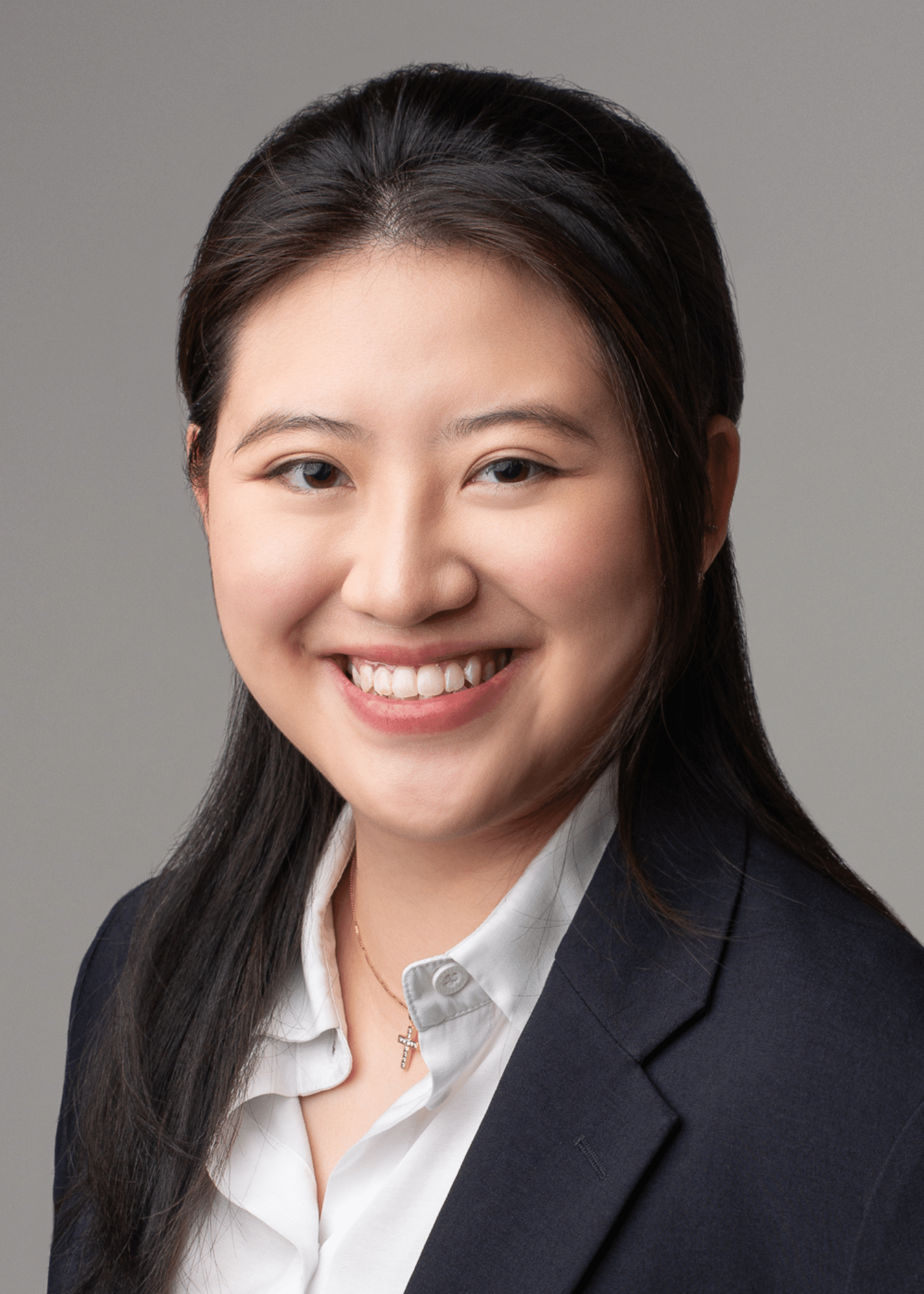 JO-ANN HENG, DEPUTY COUNSELJo-Ann has a LL.B. (Hons) (First Class Honours) degree from the National University of Singapore and a B.A. (Hons) degree from Yale-NUS College. She also holds an LL.M degree from Columbia Law School, where she graduated with High Honours and was awarded the Parker Certificate of Achievement in International and Comparative Law. She is admitted to the Bar in Singapore. Prior to joining SIAC, she worked in several top law firms in Singapore in commercial litigation and specialised in construction and engineering disputes. Jo-Ann is also an SMC Accredited Mediator. HOW-TO GUIDES (coming soon) margarita drobyshevskaIa, DEPUTY COUNSELMargarita is a Russian qualified lawyer. Before joining SIAC, Margarita worked at an arbitral institution in Russia, managing both domestic and international commercial arbitration cases and contributing to research and educational initiatives. Margarita holds a Bachelor of Laws from the Higher School of Economics, Moscow (HSE University) and a Master of Laws from the Russian School of Private Law, Moscow. She is currently pursuing a Ph.D. in Contract Law at the Lomonosov Moscow State University. Margarita is actively involved in the moot court community, coaching teams for the Willem C. Vis International Commercial Arbitration Moot and holding a leadership role in the Moot Alumni Association (MAA). Margarita is also a member of the Steering Committee of the Russian Women in Arbitration (RWA). Margarita is fluent in English and Russian. 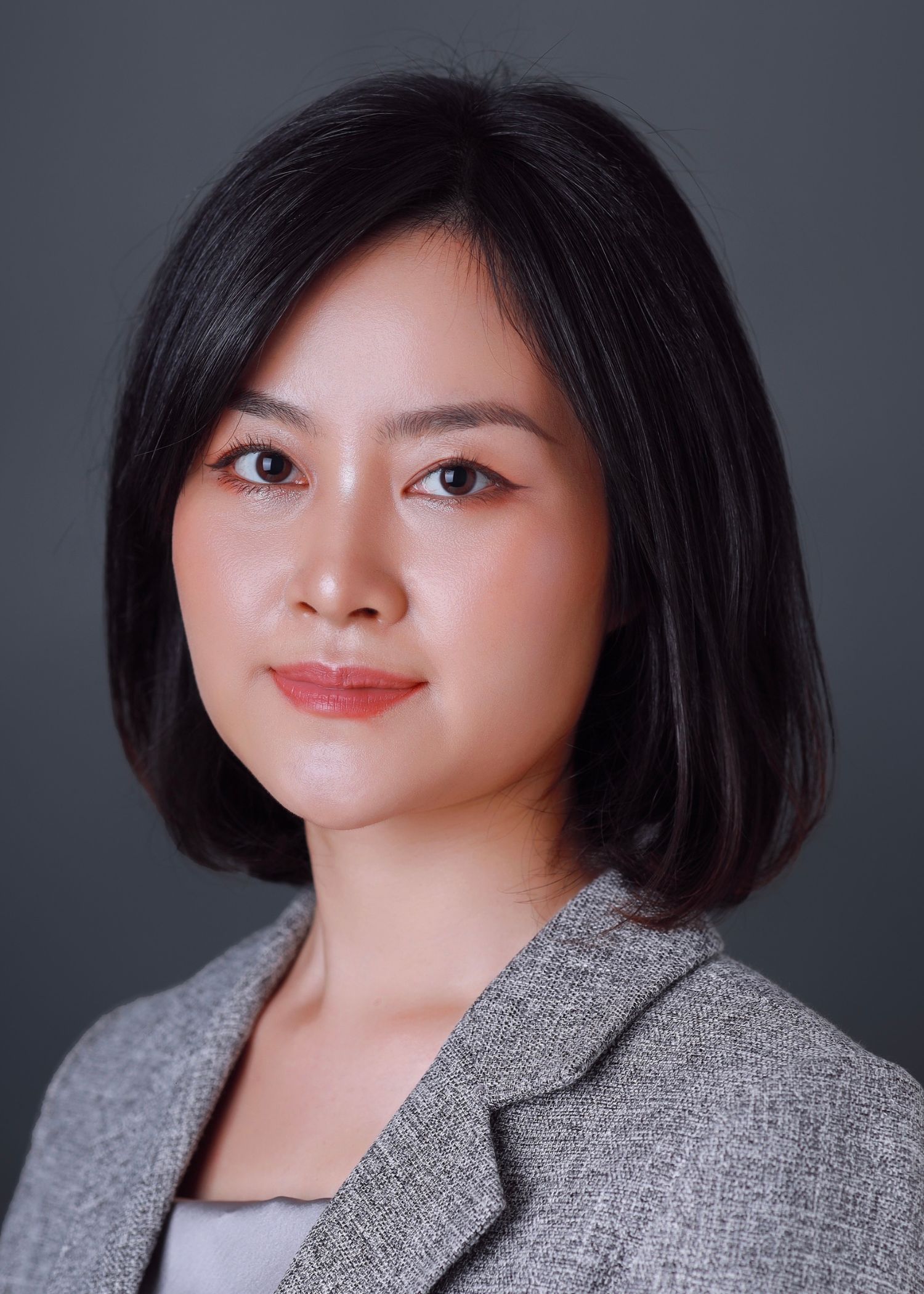 NGUYEN THI MAI ANH, DEPUTY COUNSELMai Anh is a Vietnamese-qualified lawyer. She holds an LL.B. from the Diplomatic Academy of Vietnam and an LL.M. from Maastricht University, the Netherlands. Before joining SIAC, Mai Anh was an associate at a tier-one law firm in Vietnam. Her practice focussed on litigation and international arbitration, primarily in the construction sector. She also brings experience from an international arbitration centre and worked as an assistant lecturer and researcher at the International Law Faculty of the Diplomatic Academy of Vietnam. Mai Anh has co-authored several publications on arbitration practice in Vietnam, including the Vietnam chapters in the Global Arbitration Review (2020-2023), the Delos Guide to Arbitration Places (2020-2021), the World Arbitration Reporter (2019), and the ICC Guide to National Rules of Procedure for Recognition and Enforcement of Foreign Awards under the New York Convention (2019). Mai Anh can work in English and Vietnamese. 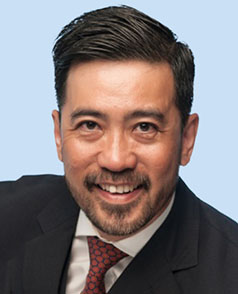 CHONG YEE LEONG, DEPUTY CHAIRMANYee Leong is the Co-Head of Allen & Gledhill LLP’s International Arbitration practice. His primary area of practice is in international arbitration focusing on the areas of energy, oil and gas, power and infrastructure projects in Singapore, Malaysia and the region. In practice for more than 29 years, Yee Leong is recognised as a leading international dispute resolution practitioner in the Asia-Pacific region. Yee Leong is a Chartered Arbitrator and a Fellow of the Chartered Institute of Arbitrators (CIArb) and the Singapore Institute of Arbitrators. He is a Director of the Singapore International Arbitration Centre (SIAC) and also on the panel of arbitrators for SIAC, Asian International Arbitration Centre and CIArb Presidential Panel of Arbitrators. He is also a Jurisdictional Council Member for Singapore for Inter-Pacific Bar Association and Chairman for Alternative Dispute Resolution Committee for the Law Society of Singapore. Yee Leong also served as a director of Singapore LNG Pte Ltd from 2011 to 2015. In 2018, he was among the inaugural batch of select practitioners to be recognised as a Senior Accredited Specialist in Building and Construction Law by the Singapore Academy of Law. 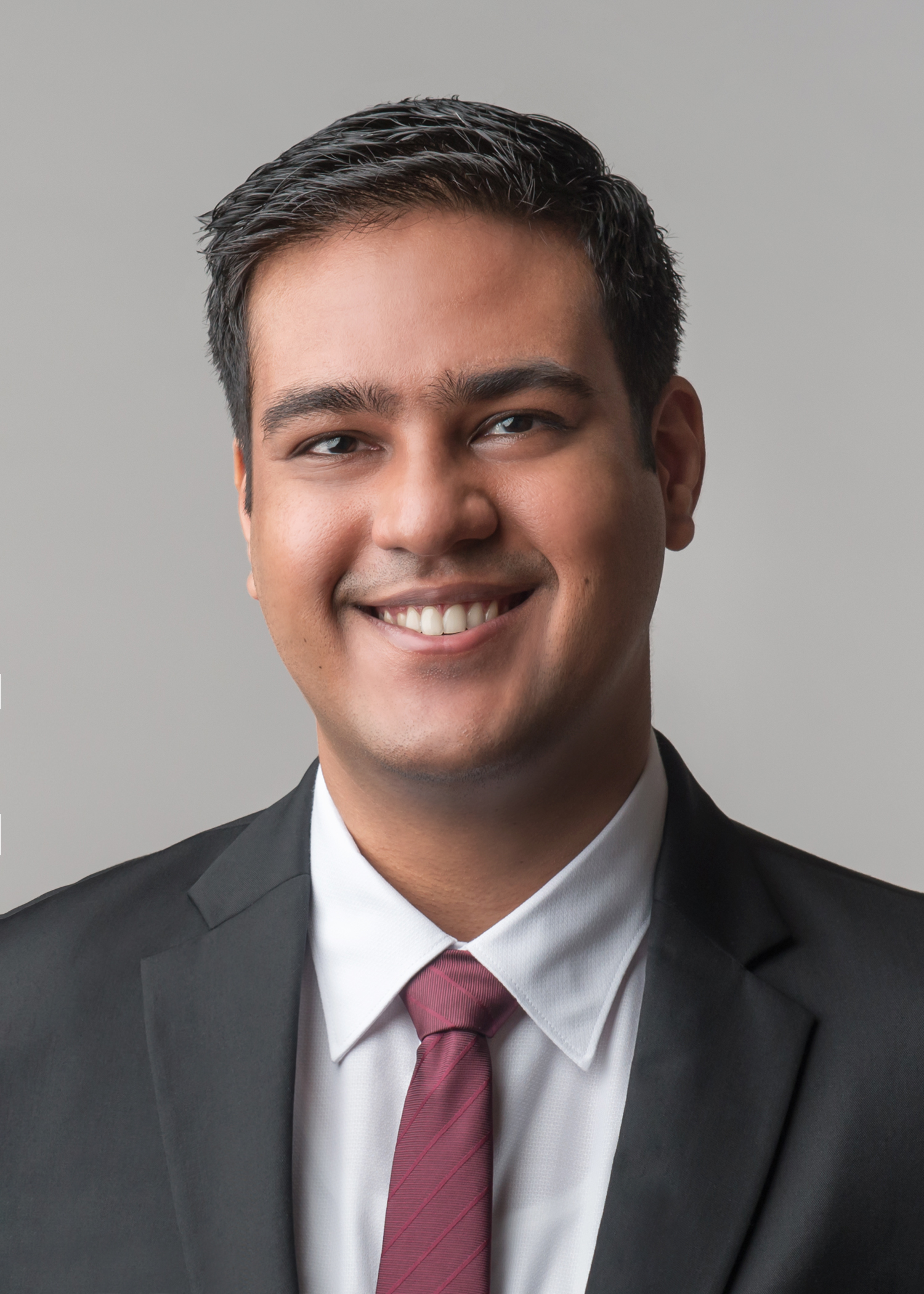 PRANAV BUDIHAL, DEPUTY COUNSELPranav graduated with an LL.M (International Arbitration and Dispute Resolution) from the National University of Singapore. He also holds a B.B.A.LL.B (Hons) degree from National Law University Odisha, India. During his time at NLUO, he represented the university in various moot court competitions, including the Willem C. Vis International Commercial Arbitration Moot, Vienna. He is admitted as an Advocate with the Bar Council of India. Prior to joining SIAC, Pranav worked with a boutique dispute resolution firm in India where his practice focussed on commercial litigation and arbitrations across the construction, energy and trade sectors. Pranav is fluent in English and can speak Hindi and Kannada. He also has a good understanding of Telugu.  THEA ELYSSA VEGA, COUNSELPrior to joining the SIAC, Thea was an Associate Solicitor at the Office of the Solicitor General in the Philippines where she handled criminal, civil, international commercial, and investor-state arbitration. She has also handled cases across various sectors such as energy, public-private partnerships, gaming, competition law, among others. She was also once part of the Philippine delegation in the UNCITRAL Working Group III on Investor-State Dispute Settlement Reform. She also worked as legal intern at the Philippine Supreme Court. Thea earned her Juris Doctor Degree (J.D.) from the Ateneo de Manila University School of Law in the Philippines and is admitted to the Philippine Bar. Thea speaks Filipino (Cebuano and Tagalog) and English.  LIM SHI JEAN, COUNSEL (TEAM LEAD)Shi Jean graduated with an LL.B. (Hons) from the Singapore Management University School of Law. She is admitted to practice as an Advocate & Solicitor of the Supreme Court of Singapore. Prior to joining SIAC, she practiced shipping and commercial litigation at a law firm in Singapore. 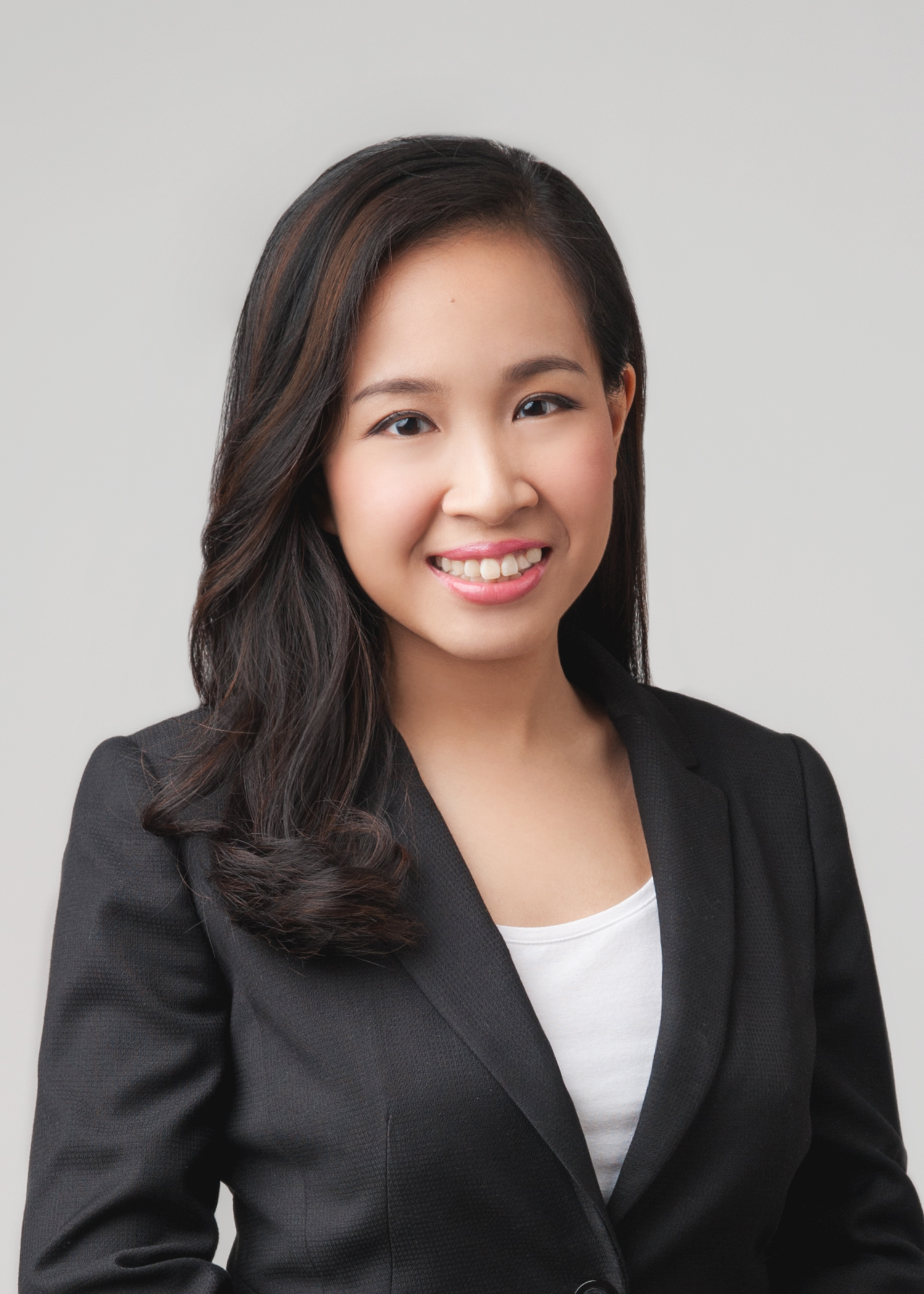 PAULINE LOW, COUNSELPauline is a Malaysian-qualified lawyer with a background in litigation and arbitration. Prior to joining SIAC, Pauline practiced at a top-tier law firm in Malaysia. She read law at the University of Malaya under a full scholarship from an international oil & gas company and was placed on the Dean’s List. During her time in law school, Pauline was active in moot court competitions and represented Malaysia in international competitions.  KENDISTA WANTAH, COUNSELKendista graduated from Universitas Katolik Parahyangan where he actively participated and performed with distinction in international moot court competitions. Kendista thereafter practiced commercial litigation and arbitration – both national and international – with leading dispute resolution firms in Indonesia. He also clerked for one of the foremost Indonesian arbitrators prior to joining SIAC. 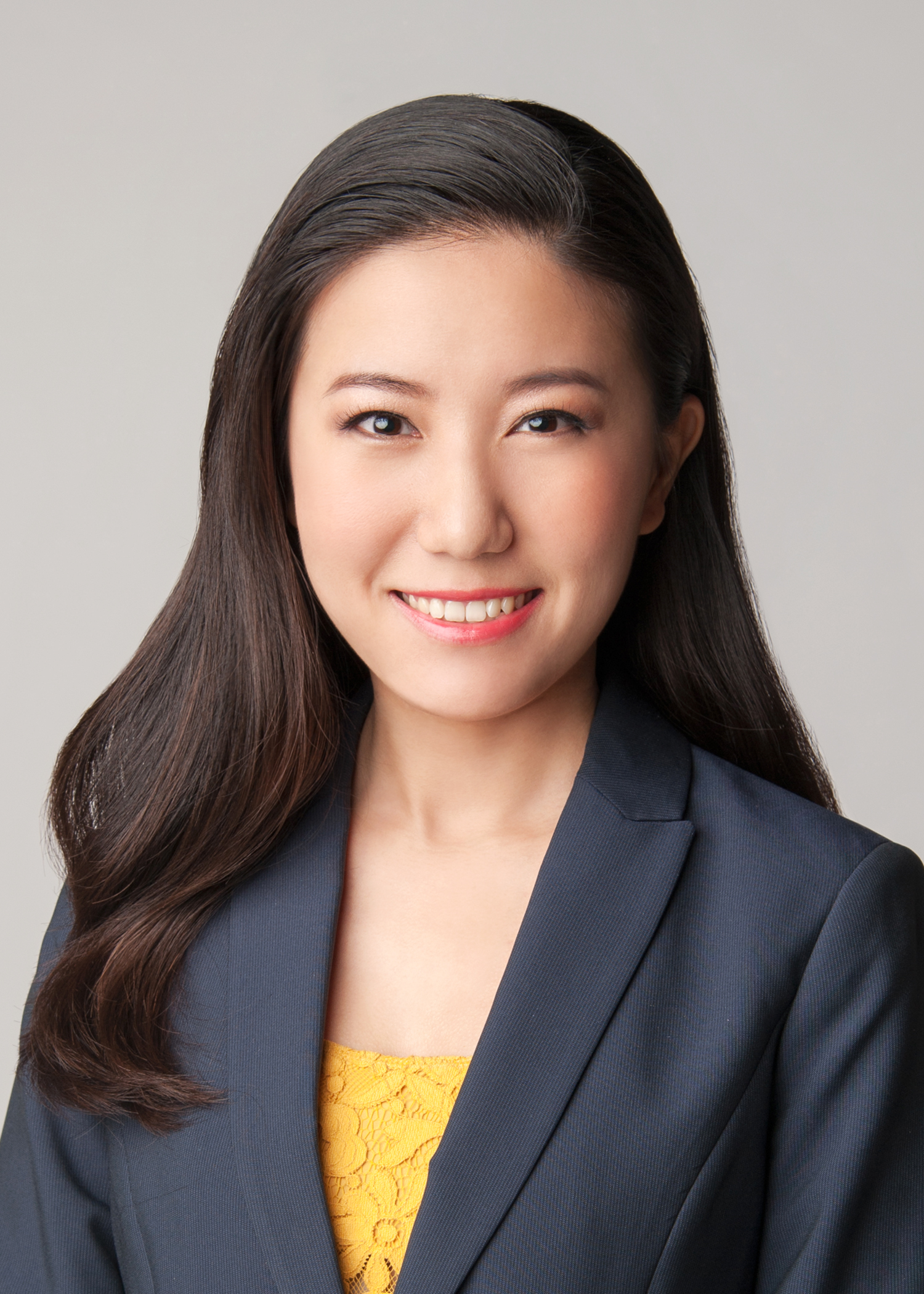 QIAN WU, COUNSEL (TEAM LEAD)Qian is a graduate of Sichuan University (Bachelor’s degree in law), Xiamen University (Master’s degree in law) and the Geneva LL.M. in International Dispute Settlement (MIDS). Qian is also the Assistant Editor of Asian International Arbitration Journal.  KEVIN NASH, REGISTRARAs Registrar of the Singapore International Arbitration Centre, Kevin leads the SIAC Secretariat in the provision of case management services. Over the course of the past decade, Kevin has overseen the administration of thousands of international cases under all versions of the SIAC Rules and the UNCITRAL Arbitration Rules. Under the Singapore International Arbitration Act 1994, Kevin is the statutory taxation authority and he is empowered to authenticate and certify awards and arbitration agreements. Kevin worked closely on the revisions to the SIAC Rules 2013, SIAC Rules 2016, SIAC Investment Arbitration Rules 2017, and leads the SIAC Secretariat on the drafting of the seventh edition of the SIAC Rules. He is an active participant at UNCITRAL Working Group II (Dispute Settlement) and UNCITRAL Working Group III (ISDS) and frequently speaks, lectures and conducts training on contemporary issues in arbitration. Recognised for being ‘truly exceptional in his passion for, and knowledge of, international arbitration’, Kevin is listed by Who’s Who Legal as a Global Leader and National Leader for Southeast Asia in international arbitration. Described as a ‘rock star of arbitration’ and ‘a calm presence and a safe pair of hands for the most complex matters’, peers and clients say that he is ‘without equal in the region, in terms of institutional knowledge and expertise in international arbitration’ and that ‘no one knows more about arbitration in Singapore’. Kevin is qualified as a Barrister and Solicitor with the Law Society of Upper Canada. He speaks English and French.  LUCY REED, PRESIDENTLucy Reed is President of the Singapore International Arbitration Centre Court. Lucy, an independent arbitrator with Arbitration Chambers (New York), is also the immediate past President of the International Council for Commercial Arbitration (ICCA). She retired in 2016 from Freshfields Bruckhaus Deringer, where she led the global international arbitration group from the New York, Hong Kong and Singapore offices, and then was Professor of Practice and Director of the Centre for International Law at NUS through 2019. In addition to practicing international commercial and investment treaty arbitration, she served as an arbitrator on the Eritrea-Ethiopia Claims Commission (a humanitarian law/Geneva Convention claims commission), co-director of the Claims Resolution Tribunal for Dormant Accounts in Switzerland (a Holocaust claims tribunal) and, while with the US State Department, the US Agent to the Iran-US Claims Tribunal. Lucy, a member of the US Council on Foreign Relations, is a former President of the American Society of International Law. She was educated at the University of Chicago Law School and Brown University.  ALIONA BITKIVSKAJA, COUNSELAliona graduated with an LL.M. in International Business Law from the National University of Singapore, specializing in International Arbitration, International Investment Law and Comparative Oil and Gas Law. She also holds a B.A. degree in Anthropology and Law from the London School of Economics and Political Science. 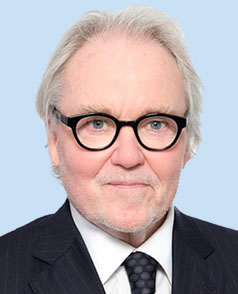 MICHAEL MOSER, MEMBERMichael Moser is an international arbitrator with Twenty Essex Chambers. He is a Chartered Arbitrator, a Fellow of the Chartered Institute of Arbitrators and a Fellow of the Singapore Institute of Arbitrators. He received his law degree from the Harvard Law School and holds a PhD (With Distinction) from Columbia University.  RAJIV K LUTHRA, MEMBERMr Rajiv K Luthra is the Founder and Managing Partner of L&L Partners (formerly Luthra & Luthra Law Offices), a full- service top-tier Indian law firm. 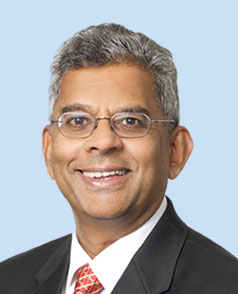 GERALD SINGHAM, MEMBERGerald Singham is the Global Vice-Chair & ASEAN CEO at Dentons Rodyk & Davidson LLP. He is also a Senior Partner of Dentons Rodyk’s Corporate Practice Department and Co-Head of the Competition and Antitrust Practice. Gerald has extensive experience advising domestic and multinational clients from a broad range of industries on competition law matters and deals with all aspects of competition law, including merger clearance/notifications, cartel investigations, and advising on competition restrictive practices and sectoral competition laws. Apart from the competition area, he has experience in other aspects of corporate transactions like mergers and acquisitions, private equity and foreign direct investments. Gerald is named in numerous legal guides and directories including the Chambers Asia Pacific, The Legal 500 Asia Pacific, Global Competition Review, Who’s Who Legal, IFLR1000, Asialaw Leading Lawyers and Best Lawyers. Gerald is also appointed on the boards of several public agencies including as Chairman of National Crime Prevention Council, National Heritage Board and Republic Polytechnic. He is also appointed as a member of the Military Court of Appeal. 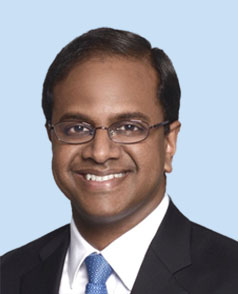 SIRAJ OMAR, SC, MEMBERMr Siraj Omar, S.C. is a Director in the Dispute Resolution department at Drew & Napier LLC. He specializes in complex, high-value commercial disputes and has more than two decades of active trial and appellate practice in the Singapore Courts and in international arbitrations. 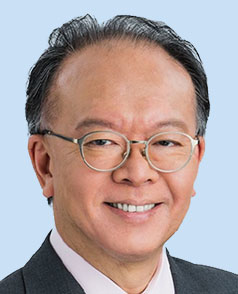 THAM SAI CHOY, MEMBERMr Tham Sai Choy is a chartered accountant. He was the managing partner of KPMG Singapore and then chairman of its KPMG Asia Pacific operations when he retired. As an accountant in practice, he led audits, investigations and consultancy work at a wide range of Singapore companies. 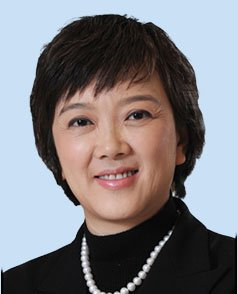 ARIEL YE, MEMBERMs Ye is the senior partner of King & Wood Mallesons PRC’s cross-border dispute resolution practice and a recognised expert on PRC-related dispute resolution in the Asia Pacific region.  LUKE ANDREW SOBOTA, MEMBERLuke Sobota is a founding and managing partner of Three Crowns, resident in the Washington DC office. His practice is dedicated to commercial, investor-state, and inter-state arbitration, and he has extensive experience in the technology, energy, and financial sectors. He is recognized in leading directories and rankings, such as Chambers & Partners, Legal 500, and Who’s Who Legal. 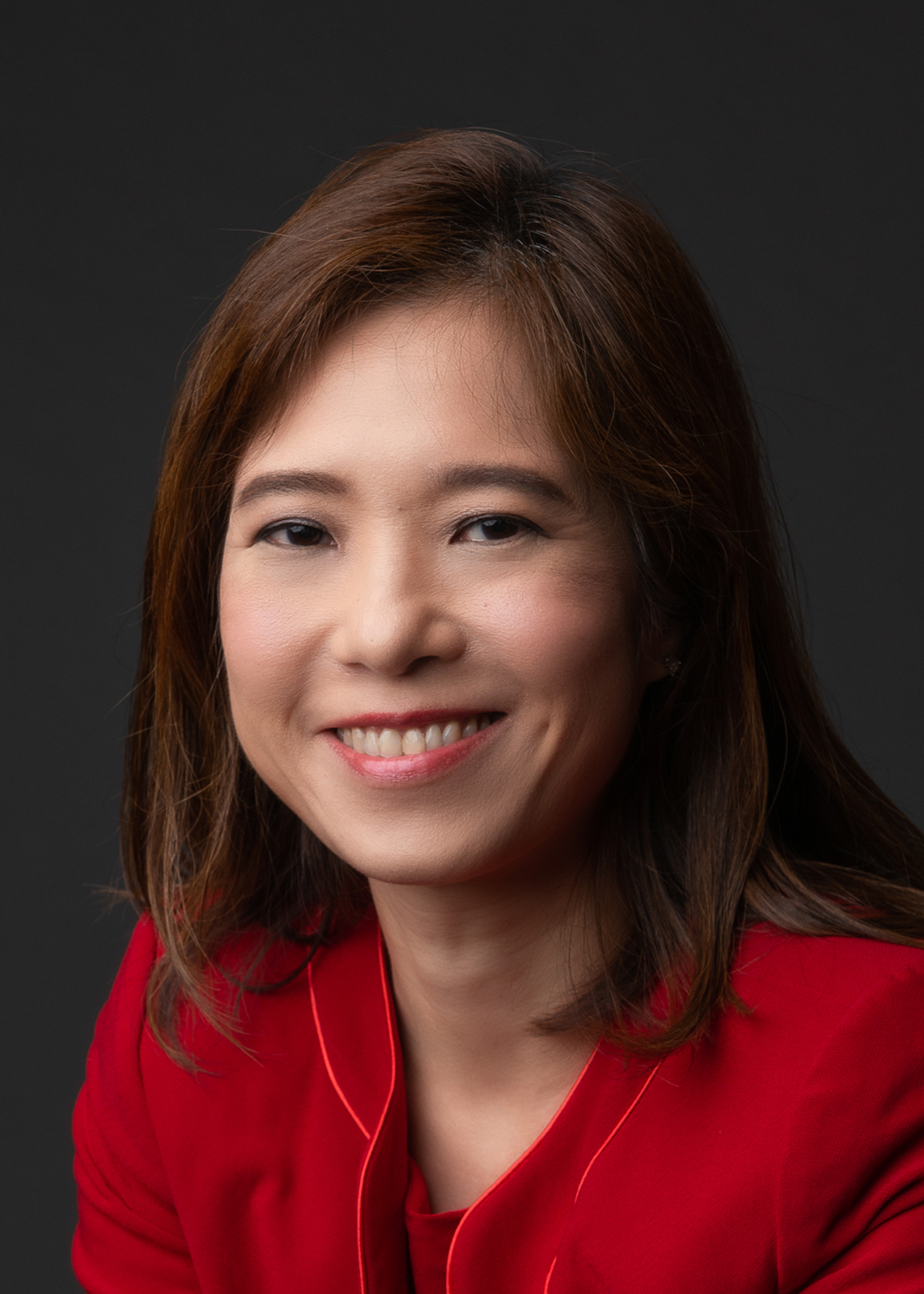 GLORIA LIM, CHIEF EXECUTIVE OFFICERAs the Singapore International Arbitration Centre’s (SIAC) Chief Executive Officer, Gloria works closely with the Chairman and the Board in formulating and fulfilling the vision and strategies for SIAC, and is responsible for the overall management and operations of the institution. Gloria was previously the Director of the Legal Industry Division in Singapore’s Ministry of Law and concurrently held the statutory appointment of Director of Legal Services, heading its Legal Services Regulatory Authority. As Director of the Legal Industry Division, she oversaw the development of Singapore’s legal sector, as well as the development and promotion of the international dispute resolution regime in Singapore. In 2008, Gloria was awarded the Public Administration Medal (Bronze) for her contributions as General Manager of the Community Mediation Unit. In 2016, she was awarded the Public Administration Medal (Silver) for her contributions as Director of the Legal Industry Division. In 2023, she was a recipient of the National Awards (Covid-19) – Covid-19 Resilience Medal. Gloria also headed the Singapore delegation involved in the United Nations Commission on International Trade Law (UNCITRAL) Working Group II (Dispute Settlement) discussions from 2019-2021. Gloria is experienced in legal policy, alternative dispute resolution and community mediation. She graduated from the National University of Singapore (NUS) and is called to the Singapore Bar. She also holds a Graduate Certificate in International Arbitration from NUS and an LL.M from Harvard University. 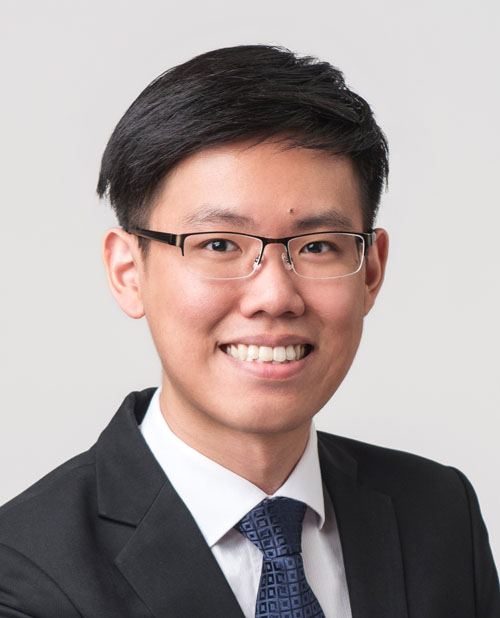 DEXTER CHENG, COUNSELDexter graduated with a LL.B. (Hons) from the National University of Singapore. He is admitted to practice as an Advocate & Solicitor of the Supreme Court of Singapore. Prior to joining SIAC, Dexter trained with a boutique law firm in Singapore which specialises in corporate and commercial law. 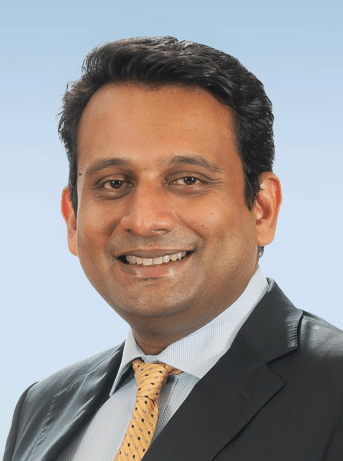 VIJAYENDRA PRATAP SINGH, MEMBERVijayendra Pratap Singh is a Senior Partner and Head (Dispute Resolution) at AZB & Partners, Delhi. Vijayendra has spearheaded various arbitrations concerning shareholder agreements, option contracts, long term supply (including restitution claims on account of cancellation of coal blocks), confidentiality, franchising and intellectual property issues. The arbitrations are both ad hoc as well as institutional and seated across multiple jurisdictions. He represented SIAC in the BALCO case before the Supreme Court on the scope and extent of judicial intervention of Indian courts with foreign seated arbitrations. He presently represents Amazon in the much publicised dispute with Future Retail Limited which recognized the enforceability of a SIAC emergency arbitrator award in India. Vijayendra is listed in various legal directories such as Chambers & Partners and Legal 500. He has been named as the Dispute Resolution Star of the Year by Benchmark Litigation Asia Pacific and has been named in the Global Arbitration Review. He has been involved with capacity building initiatives in the field of arbitration and is a visiting faculty at various Universities and Institutions. He has also appeared before Parliamentary committees looking at various laws, including India’s Model Bilateral Investment Treaty. 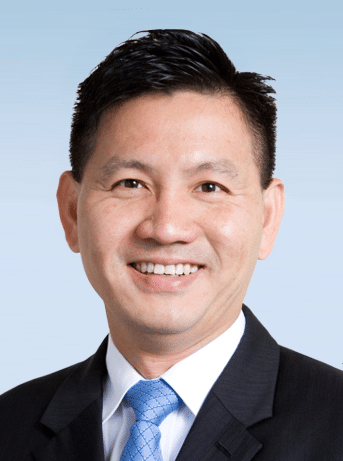 CHAN HOCK KENG, MEMBERCHAN Hock Keng is the Co-Head of WongPartnership’s Commercial & Corporate Disputes Practice and a Partner in the International Arbitration Practice. He has an active practice as a counsel in Court proceedings and international arbitrations and regularly sits as an arbitrator. He is a Honorary Legal Adviser to the Singapore Medical Association, a panel member of the Inquiry Committee as well as the Disciplinary Tribunal appointed by the Chief Justice to hear complaints against lawyers. He is also a Honorary Council Member of the Singapore Chinese Chamber of Commerce & Industry. On the arbitration front, Hock Keng has been newly appointed as a member of the Court of Arbitration of the Singapore International Arbitration Centre. He is also a Chartered Arbitrator of the Chartered Institute of Arbitrators and a panel member of various arbitration centres. Hock Keng is recognised as a leading individual for his arbitration expertise by Chambers Asia-Pacific Leading Lawyers for Business and is commended by clients as a “very creative lawyer” and who is “commercially minded and very quick to grasp points opposing counsels make”. 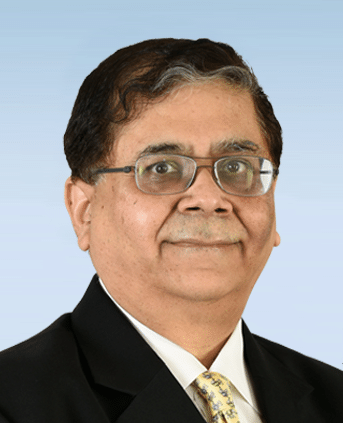 CYRIL SHROFF, MEMBERCyril Shroff has over 41 years of experience in a wide range of practices areas, including corporate and securities law, disputes, banking, bankruptcy and infrastructure. Over the years, his passion for a just world, blended with a keen sense of fairness and empathy has helped cam firmly establish itself as a trusted advisor to its clients. Mr. Shroff has consistently been ranked as “eminent practitioner” in India by Chambers & Partners and is often regarded as the “M&A King of India”. A thought leader and a visionary, Mr. Shroff is known for advising on many first of their kind transactions in India. He is the Chairman of FICCI’s Corporate Laws Committee and chair of the CII Financial Regulatory Committee. He is a member of the RBI working committee on regulatory issues relating to Fintech. He is also a member of CII’s national start-up council, a member on the Board of SIAC, a member of the first apex advisory committee of the IMC International ADR Centre, and a Task force member of the Society of Insolvency Practitioners of India. He was a member of SEBI’s constituted Uday Kotak Committee on Corporate Governance. He is also a member of the Thought Committee on Bank Insolvency of the Insolvency Law Academy.  ANDRES LARREA SAVINOVICH, DEPUTY COUNSELAndres is an Ecuadorian-qualified lawyer. Prior to joining SIAC, Andres worked as a Senior Associate at an Ecuadorian law firm for twelve years where he represented parties in commercial and investment arbitrations across a range of sectors, including natural resources, mining, insurance, telecommunications and construction. Andres has been appointed as an arbitral secretary in over 60 arbitration cases administered by the most important arbitration centres in Ecuador. Andres holds an LL.M. from McGill University. While he was at McGill he served as an associate editor for the McGill Journal of Dispute Resolution. He is a member of the LATAM Subcommittee of the Campaign for Greener Arbitrations, CyberArb, Rising Arbitrators Initiative and the Club of Arbitration of Spain. Andres is fluent in English and Spanish.  Lee Yoke Peng, CHIEF OPERATING OFFICERAs the Chief Operating Officer, Yoke Peng works with the Board and the Senior Management team to create value for SIAC by transforming corporate and organisational processes and implementing productivity and technology initiatives. She was previously the Registrar for Re-Align Framework Registry in Ministry of Law, where she set up and headed the Registry to help businesses to realign their contracts with the pandemic business conditions. Yoke Peng had a myriad of experiences from both the private and public sectors, ranging from legal practice, to entrepreneurial set-ups, and government agencies. In her stint in Public Service Division, she was in the PS21 office where she helped to develop and implement programmes that promoted increasing levels of innovation and positive change in public services, and enhanced their efficiency and responsiveness. In Civil Service College, she headed up departments that were in-charge of corporate functions like human resource, training, talent retention and attraction, strategic planning, corporate communications, IT, corporate governance, administrative and infrastructure work, and board secretariat work. Yoke Peng graduated from the National University of Singapore (NUS) and is called to the Singapore Bar.  RISHABH, DEPUTY COUNSELorem ipsum dolor sit amet, consectetur adipiscing elit. Nullam a rutrum odio. Vestibulum ornare sagittis nisi vitae vestibulum. Vestibulum eget lacus dui. Vestibulum rhoncus imperdiet blandit. Ut tincidunt vitae massa non lacinia. Maecenas id nisi eget ligula lobortis faucibus. Fusce vel ante vulputate, vestibulum eros ut, molestie felis. Vivamus facilisis nisl at efficitur venenatis. Aliquam lobortis, est ac vehicula consequat, lectus urna sodales nisl, eu bibendum ipsum risus dignissim lacus. Mauris bibendum ligula at dignissim blandit. Morbi sapien orci, rutrum a ultricies vel, dictum sed velit. Aenean sed aliquet tortor. Donec ornare lobortis elit, id vulputate nisi luctus sit amet. Ut luctus ante ut pulvinar bibendum. In facilisis turpis id est ullamcorper efficitur vitae quis magna. Vestibulum ante ipsum primis in faucibus orci luctus et ultrices posuere cubilia curae; Duis ut ultricies nibh, in accumsan velit. Morbi lobortis urna ut urna commodo dapibus. Sed at risus tellus. Quisque vel ipsum et mi ultricies euismod sodales tristique quam.  Mr Cunyuan Zhang, Director & Head, China / Chief Representative of Shanghai Representative OfficeMr Cunyuan Zhang is Head (China) of Singapore International Arbitration Centre (SIAC), and Chief Representative of SIAC’s Shanghai Representative Office. He is responsible for overseeing SIAC’s activities in China. Since joining SIAC, Cunyuan has worked with key stakeholders of business and legal communities to promote the development of international arbitration and global best practices, by organising training workshops and networking events for in-house counsel, practitioners and arbitrators. He is a frequent speaker on arbitration topics, and conducts lectures and training sessions for arbitration users. He is a member of the SIAC delegation at UNCITRAL Working Group II (Dispute Resolution). He graduated from Renmin University of China and Peking University School of Transnational Law, with Bachelor’s degree, JD and JM Degrees. He is qualified as an attorney in China. Prior to joining SIAC, he worked in a leading Chinese law firm in Beijing, where he advised and represented clients in international arbitrations and related lawsuits. 张寸渊先生担任新加坡国际仲裁中心(SIAC)中国区主任兼上海代表处首席代表,负责处理新仲在中国区的各项事务。 自加入新仲以来,他与商界和法律界的主要利益相关者合作,为公司法务、律师和仲裁员组织培训研讨会和交流活动,促进国际仲裁和全球最佳实践的发展。他经常就仲裁相关话题发言,并为用户提供培训。他是新仲在联合国国际贸易法委员会第二工作组(争议解决)的代表团成员。他毕业于中国人民大学和北京大学国际法学院,获得文学学士,美国法JD以及中国法律硕士学位。他具有中国律师资格。 在加入新仲之前,他曾在一家行业领先的中国律师事务所北京办公室工作,代理国际仲裁及相关诉讼案件。 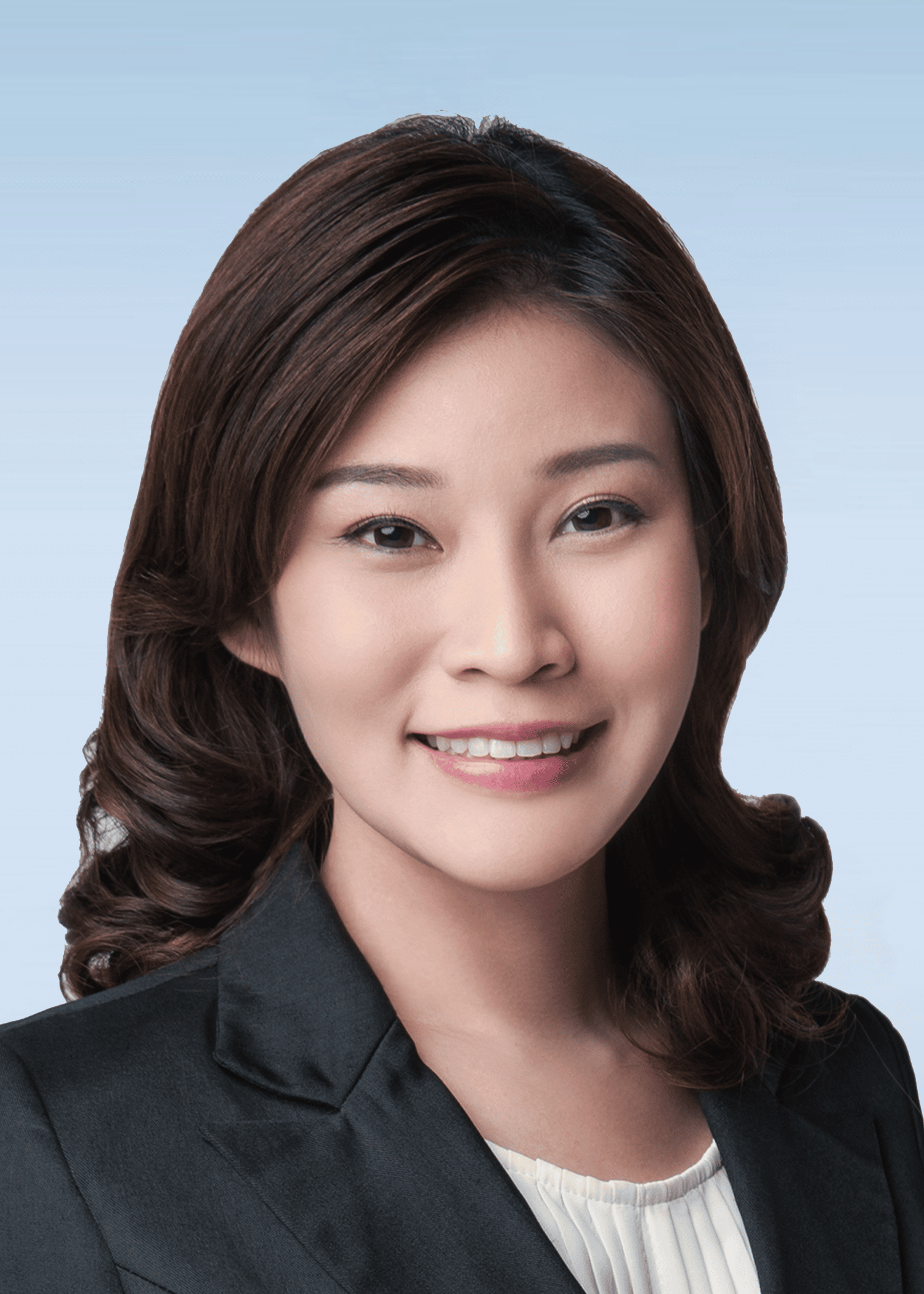 ADRIANA USON, Director & Head, AmericasAs Director & Head, Americas, at the Singapore International Arbitration Centre (SIAC), Adriana oversees SIAC’s activities in North and South America. She has broad experience as an arbitration practitioner – having served as arbitrator, international arbitration lawyer, and Counsel in the SIAC Secretariat. Adriana first joined SIAC as Counsel, during which time she administered over two hundred cases under the SIAC Rules and UNCITRAL Arbitration Rules, with a particular focus on disputes involving States, State-controlled entities, and intergovernmental organisations. She was involved in the drafting of the SIAC Rules 2016, SIAC Investment Arbitration Rules 2017, and the SIAC Practice Notes on third party funding. She was also a key contributor in the Singapore Institute of Arbitrators (SIArb) working group that published the SIArb Guidelines on Party-Representative Ethics. Prior to rejoining SIAC, Adriana was a disputes lawyer at a leading international law firm in Singapore, where she advised and represented clients in international commercial and ICSID arbitrations. Adriana is an active member of the Young SIAC Committee (YSIAC) and the Chartered Institute of Arbitrators (Singapore) Young Members Group.  Shwetha Bidhuri, Director & Head, South AsiaShwetha joined SIAC in November 2018 and is based in the SIAC Mumbai Office. Shwetha was enrolled as an Advocate in 2007 and holds a Master of Laws degree. Prior to joining SIAC, Shwetha worked in the dispute resolution practice of a leading law firm in New Delhi for nearly a decade on commercial litigation cases as well as investment treaty arbitrations involving foreign and Indian investors. Shwetha has worked on many leading cases which have contributed to the development of law affecting global companies. 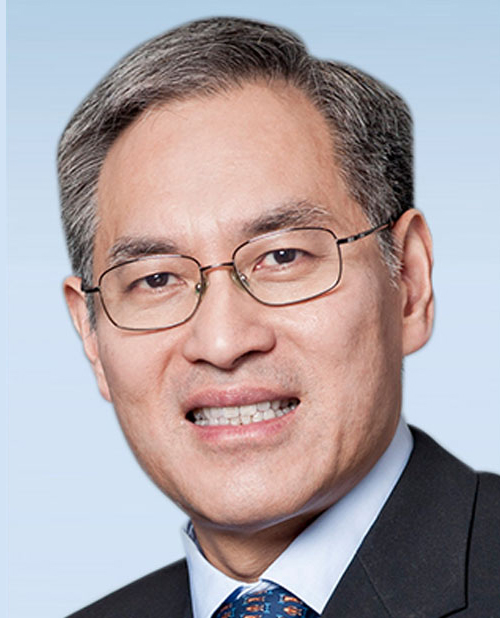 ALVIN YEO, SC, MEMBERMr Alvin Yeo, Senior Counsel, is the Chairman and Senior Partner at WongPartnership LLP, Singapore. His main areas of practice are litigation and arbitration in banking, corporate/commercial and infrastructure disputes. Mr Yeo has extensive experience as counsel in arbitration proceedings both in Singapore and in the region, and also sits as an arbitrator. Mr Yeo graduated from King’s College, University of London, and is admitted to the English Bar (Gray’s Inn) and the Singapore Bar. In January 2000, Mr Yeo became the youngest lawyer to be appointed Senior Counsel.  GAËTAN VERHOOSEL KC, MEMBERGaëtan is a founding partner of Three Crowns. He has served as advocate and as arbitrator in a large number of both commercial and investment treaty arbitrations. Gaëtan is a past Senior Co-Chair of the Arbitration Committee of the International Bar Association and was appointed to the ICSID Panel of Arbitrators by the Kingdom of Belgium. He teaches at King’s College School of Law in London. Before entering private practice, he served as a Legal Advisor at the World Trade Organization in Geneva, where he advised dispute settlement panels adjudicating disputes between sovereigns across a range of industry sectors. Gaëtan is admitted to practice in England & Wales, where he was appointed Queen’s Counsel in December 2021, as well as France and Spain. He was educated at Columbia Law School, the Johns Hopkins University School of Advanced International Studies, and the Catholic University of Leuven. 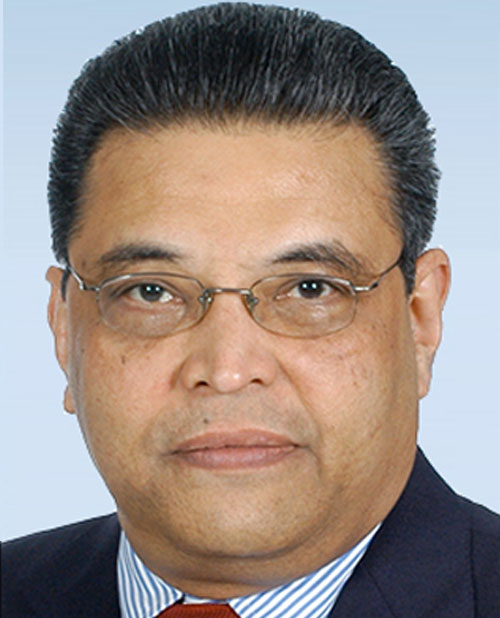 ALAN THAMBIAYAH, MEMBERSince 1989, Mr Thambiayah has been appointed as chairman of arbitral tribunals, sole arbitrator or co-arbitrator in over 450 ad-hoc and institutional arbitrations of disputes arising from international investment contracts and joint ventures, infrastructure, building & civil engineering contracts, oil and gas operation, distribution and transport network contracts, and maritime and international trade contracts (including charterparties and export finance), in Bangkok, Colombo, Delhi, Hong Kong, Karachi, Kolkata, Kuala Lumpur, London, Mumbai, New York, Paris, Perth, Seoul, Sydney and Singapore, with the total value of claims in excess of US$8 billion. 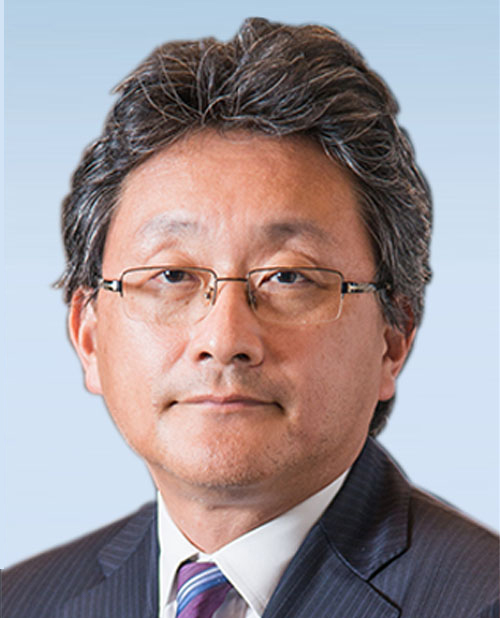 HIROYUKI TEZUKA, MEMBERHiroyuki Tezuka is a partner at Nishimura & Asahi, and heads the firm’s international dispute resolution practice group. He specialises in international commercial litigation and arbitration. He has been involved in a number of international arbitrations as counsel, sole-arbitrator, co-arbitrator or chairman including before the ICC, JCAA, AAA-ICDR, VIAC, KCAB and SIAC.  GUIDO TAWIL, MEMBERProf. Dr. Guido Santiago Tawil has been an independent arbitrator since 2018. He was formerly the Senior Partner and Head of the International Arbitration, Administrative Law and Regulatory practices at M. & M. Bomchil (1993-2018) in Buenos Aires, and previously a Commissioner of Argentina´s Securities & Exchange Commission (1991-1993).  THOMAS SNIDER, MEMBERThomas R. Snider is a Partner and the Head of International Arbitration at Charles Russell Speechlys LLP based in the firm’s Dubai office. He has represented corporate entities and sovereign states in a wide range of matters involving international arbitration and other forms of cross-border dispute resolution, including state-to-state arbitration, international commercial arbitration, international investment disputes, and U.S. court litigation. Mr. Snider is recognised as a Global Elite Thought Leader in Who’s Who Legal Arbitration and is ranked for dispute resolution in Chambers United Arab Emirates. Among other roles, he is a member of Court of Arbitration of the Singapore International Arbitration Centre (SIAC) and the Board of Directors of the Dubai International Arbitration Centre (DIAC). Mr. Snider frequently speaks and writes on topics involving international law and dispute resolution. Before relocating to Dubai, he was a Professorial Lecturer in Law at the George Washington University Law School in Washington, D.C. Mr. Snider received his B.A. from the University of Notre Dame and his J.D. from Harvard Law School.  ABBY COHEN SMUTNY, MEMBERAbby Cohen Smutny is Global Head of White & Case’s international arbitration practice group. She is widely recognized as one of the world’s leading international arbitration practitioners and is an experienced arbitrator. 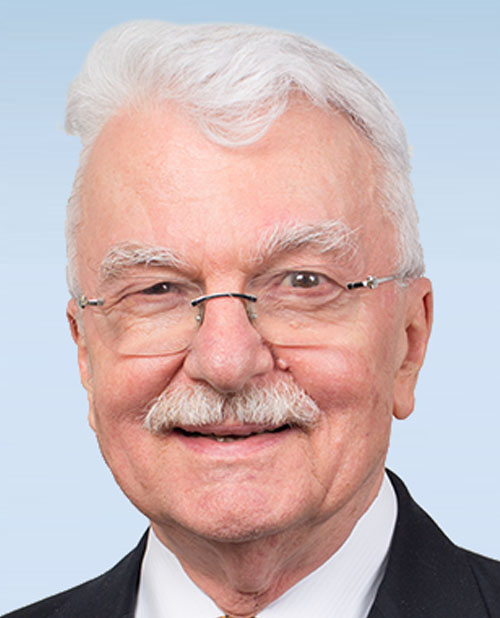 MICHAEL E SCHNEIDER, MEMBERMichael E. Schneider is a founding partner of LALIVE, an international and independent law firm based in Switzerland and London (http://www.lalive.law). He has practised in international arbitration for more than 40 years as counsel in disputes involving States and corporations in construction, industrial engineering and infrastructure projects, state responsibility foreign investment and natural resources (in particular oil and gas), organising and leading teams of specialists from different fields and different legal and cultural backgrounds. The cases were subject to various domestic laws or international law and applied various rules, including those of the UNCITRAL, ICC, ICSID, LCIA, Swiss Rules, Stockholm Institute, the Cairo Regional Centre (CRCICA), Dubai (DIAC), European Development Fund and before other international bodies, including the WTO Appellate Body and the United Nations Compensation Commission (UNCC). He has also acted as arbitrator (sole, presiding or co-arbitrator) under the rules of many institutions. 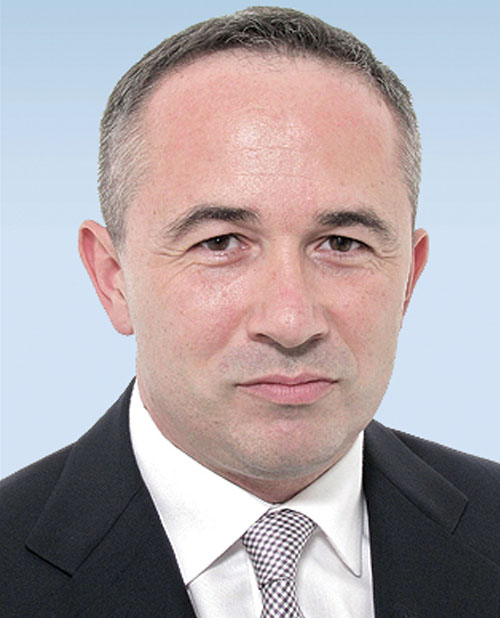 JOHN SAVAGE KC, MEMBERJohn Savage KC is a Partner in King & Spalding’s International Arbitration group based in the firm’s London and Singapore offices. He is member of the SIAC Court and was a Vice-President of the SIAC Court from 2013 to March 2018 and a Director of the SIAC from 2009 to 2017. Mr Savage has more than 25 years’ experience representing governments and corporations in over 200 international arbitrations around the world. These include many corporate, construction, energy and investment treaty disputes, with an emphasis on the oil & gas and power sectors. Mr Savage has worked in Asia since 2001 and his experience extends across the Asia-Pacific region. In addition to his work as counsel, Mr Savage has been appointed chairman of the tribunal, sole arbitrator and co-arbitrator in more than 30 commercial and investment treaty arbitrations in Asia and beyond. 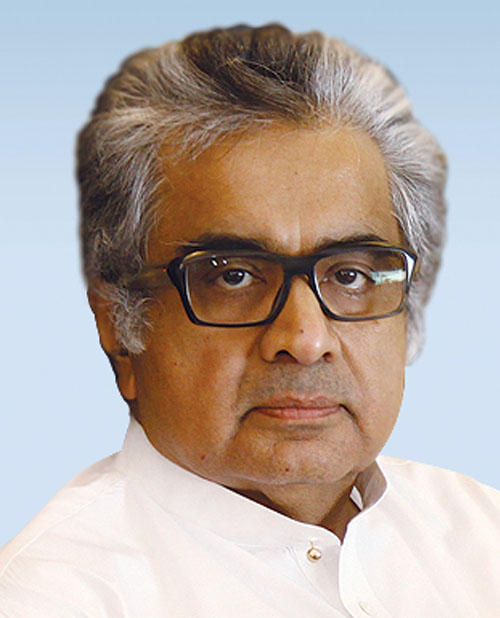 HARISH SALVE KC, MEMBERMr Harish Salve is a KC practicing in London and a tenant of Blackstone Chambers. He is also a Senior Advocate practicing in the Supreme Court of India. Mr Salve is also a Registered Foreign Lawyer in the Singapore International Commercial Court. He is a qualified Chartered Accountant who started work in taxation in 1978 and then shifted to law in 1980. He set up his independent chambers in 1986. He was designated a Senior Advocate in 1992. He held the office of the Solicitor General of India from 1999 until November 2001 being the youngest Solicitor General ever at the age of 42 years. In 2013 he took tenancy in Blackstone Chambers after joining the UK Bar and becoming a member of the Grays Inn. He has handled some of the most important cases decided by the Indian Supreme Court in the last two decades. Since 2013, he has been appearing in International Arbitrations, and in the Courts of England and Wales. He also has appeared in two cases in the International Court of Justice. He has been active in the field of international arbitration both as counsel as well as an arbitrator. He has been appointed as an arbitrator in a number of arbitrations under the rules of the ICC, LCIA and the SIAC. 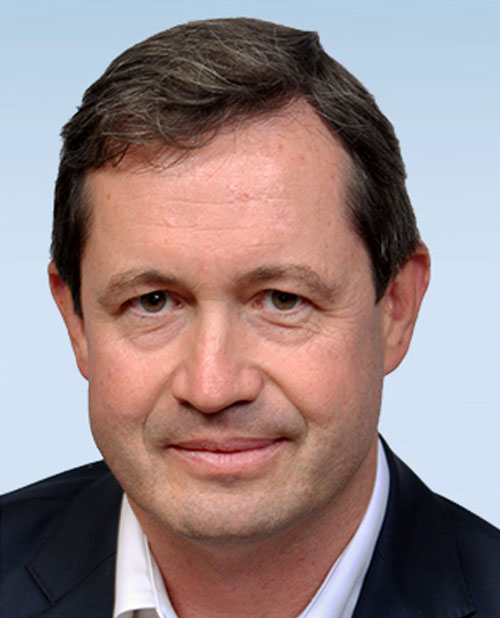 PHILIPPE PINSOLLE, MEMBERPhilippe Pinsolle is a partner of Quinn Emanuel Urquhart & Sullivan LLP, he is heading international arbitration for continental Europe. He is based in the firm’s Geneva Office. Philippe Pinsolle has over twenty-five years of experience as counsel, expert and arbitrator in international arbitration with a particular focus in international commercial arbitration, investment treaty arbitration, disputes between sovereign states in such sectors as major infrastructures, energy and other capital intensive industries. He has been involved in more than 300 arbitrations as counsel or arbitrator under the auspices of virtually all major arbitration institutions. Among his many professional activities, Philippe Pinsolle is also Senior Vice-Chair of the IBA Arbitration Committee. 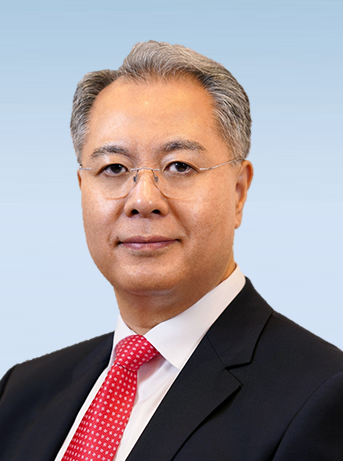 EUN YOUNG PARK, MEMBERDr Eun Young Park is a senior partner and the founding Chair of Lee & Ko’s Global Disputes Group. After serving as a judge in the Seoul District Court, Dr Park joined Kim & Chang where he has led the firm’s international arbitration and cross-border dispute practice. He recently joined Lee & Ko after serving as an independent arbitrator from 2022. He specializes in international arbitration on various issues including commercial and investment disputes, and regularly sits as an arbitrator. Dr Park is a Member of the SIAC Court of Arbitration and has served as a Vice-President of the LCIA Court. He also acted as a Vice-Chair of the IBA Arbitration Committee and a founding Co-Chair of the IBA’s Asia-Pacific Arbitration Group. He is consistently ranked as a leading lawyer in international arbitration by Chambers Asia-Pacific and other renowned legal directories. He received a J.S.D from the NYU School of Law and is admitted to the Korean bar and the New York bar.  SHANEEN PARIKH, MEMBERShaneen has over two decades of experience is a qualified to practice as an advocate and solicitor in India, and also qualified as a solicitor in England & Wales).  SHANTI MOGAN, MEMBERShanti Mogan has over 30 years of experience in a broad commercial practice, representing clients in commercial litigation and arbitration, both domestic and international. She acts both as counsel and arbitrator. She is head of the Arbitration Practice and Personal Data Protection & Privacy Law Practice and co-heads the Competition Law Practice. She is a Member of the Court of Arbitration (SIAC). She is a recognised and recommended dispute resolution lawyer (Chambers, Legal 500, Expert Guides, Who’s Who Legal, Asialaw). 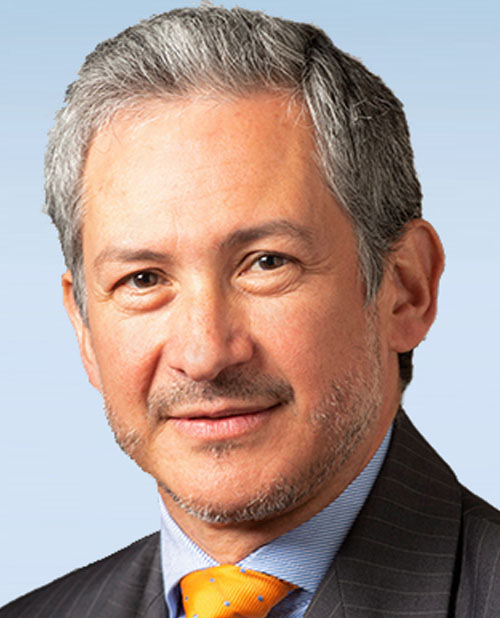 FERNANDO MANTILLA-SERRANO, MEMBERFernando Mantilla-Serrano is a partner and global Co-chair of the International Arbitration Practice at Latham & Watkins. A graduate from the Pontificia Universidad Javeriana in Bogota, where he received his Law degree (JD) together with a major in Economics, Mr. Mantilla-Serrano has also received a MCJ (LLM) from New York University (Fulbright Scholar), a DEA in International Private Law and International Trade and a DSU in EU Law from the Université de Paris II. He is acclaimed for the depth of his knowledge and experience in international arbitration representing companies, states, and state-owned entities in highly complex commercial and investor-state disputes. Mr Mantilla-Serrano has acted as lead counsel in arbitrations conducted under the main institutional arbitration rules (ICC, ICSID, LCIA, SCC, ICDR), as well as ad hoc rules. His articles on arbitration have been published in Arbitration International, the French Revue de l’Arbitrage, the Journal of International Arbitration and the Spanish Revista de la Corte Española de Arbitraje. He is fluent in English, French, Portuguese and Spanish. He was one of a four-member commission created by the Spanish Minister of Justice to draft Spain’s new arbitration act (Law 60 of December 23, 2003). Mr Mantilla-Serrano is fellow of the Chartered Institute of Arbitrators (CIArb) and member of the International Law Association (ILA). Mr Mantilla-Serrano is admitted to the bars of Colombia, New York (USA), Paris (France) and Madrid (Spain).  DARIUS J. KHAMBATA, SC, MEMBERDarius J. Khambata, Senior Counsel, LL.M. (Harvard), practises before the Supreme Court of India, the Bombay High Court and other High Courts and Tribunals across India. 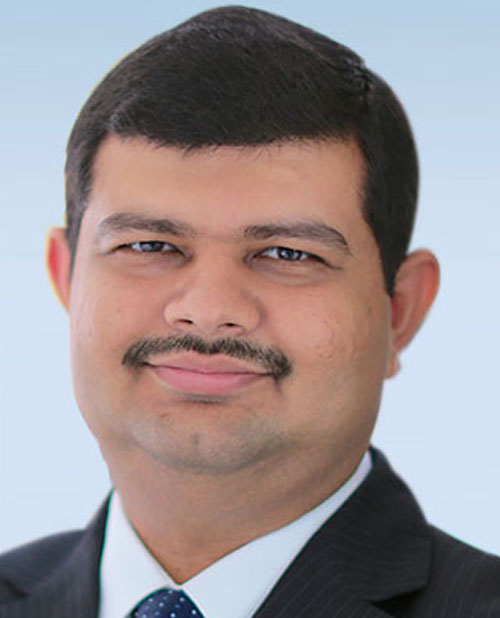 TEJAS KARIA, MEMBERTejas Karia is Partner and Head of Arbitration practice at Shardul Amarchand Mangaldas & Co. He specializes in International and Domestic Commercial Arbitrations across sectors. He has represented multinational and Indian corporations in ad hoc and institutional arbitrations involving major arbitration institutions. He was part of committee of Law Commission of India for recommending amendments to the Arbitration and Conciliation Act, 1996 and of High-powered Committee for Institutionalization of Arbitration in India. He regularly appears as counsel before the Arbitration Tribunals, High Courts and Supreme Court of India as well as sits as an Arbitrator. He is a Fellow of CIArb and Director of CIArb-India. He is Director of Indian Arbitration Forum and Vice-Chairman of Society of Construction Law – India. 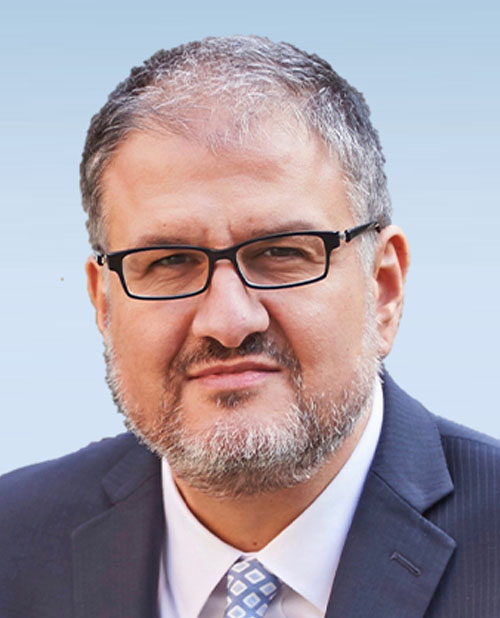 PROF BENJAMIN HUGHES, MEMBERProfessor Benjamin Hughes is an independent arbitrator with the Arbitration Chambers in Singapore and Fountain Court Chambers in London. He has been appointed as arbitrator in over 150 international commercial arbitrations around the world and across a broad range of commercial sectors, with several billion dollars in dispute. He is recognized as a leading international commercial arbitrator in numerous legal publications, including Chambers and Partners and Who’s Who Legal. 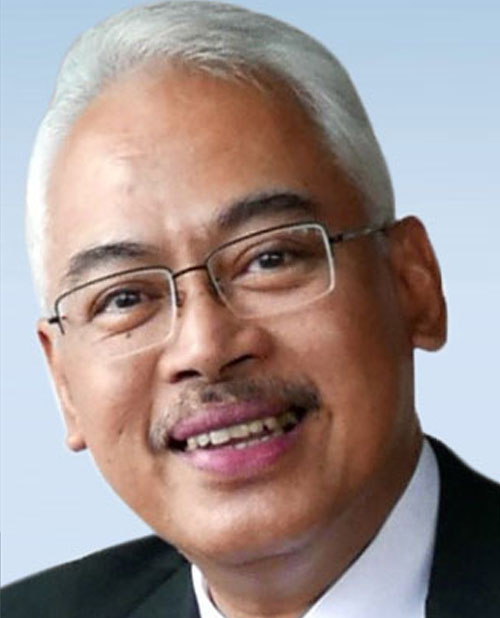 ERI HERTIAWAN, MEMBEREri is the Co-Head of the Dispute Resolution Group at Assegaf Hamzah & Partners. With experience of almost 30 years, Eri is an arbitration specialist and a seasoned litigator with extensive experience in commercial disputes, alternative disputes resolution, aviation law, and shipping law.  BERNARD HANOTIAU, MEMBERProf. Bernard Hanotiau has been actively involved in international arbitration as party-appointed arbitrator, chairman, sole arbitrator, counsel and expert in all parts of the world, under the rules of all major arbitral institutions including the ICC, LCIA, SIAC, DIAC, HKIAC, SCC, AAA, Swiss Chambers, NAI, CRCICA, KCAB, PCA and in many ad hoc cases for the last 40 years.  KARINA GOLDBERG, MEMBERKarina Goldberg is partner of Ferro, Castro Neves, Daltro & Gomide (FCDG), a Brazilian boutique law firm with offices in Rio de Janeiro and São Paulo, with focus in commercial disputes, both in court litigation and arbitration.  JESSICA FEI, MEMBERMs Jessica Fei is a widely recognized leading international arbitration and dispute resolution practitioner with over 25 years’ experience in international arbitration. She is global co-head of international arbitration practice of King & Wood Mallessons. Her practice focuses on large-scale international arbitration and cross-border litigation, for clients including Chinese state-owned enterprises (SOEs) and private companies, multinationals and major regional corporates. Qualified in the New York State and China, Jessica is one of the very few leading international dispute resolution practitioners in China who can effectively handle cases in both English and Chinese languages as counsel and arbitrator, and has significant international background and experience as well as deep understanding of the Chinese corporate culture and law. 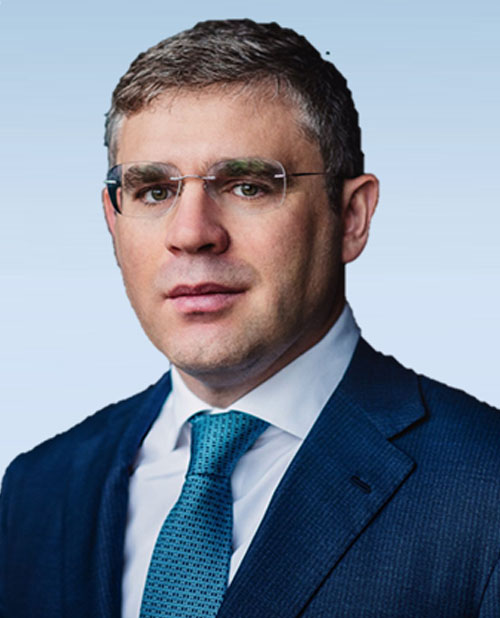 DMITRY DYAKIN, MEMBERDmitry B. Dyakin is an advocate, a Partner and Co-Head of Dispute Resolution practice at Rybalkin, Gortsunyan and Partners in Moscow. 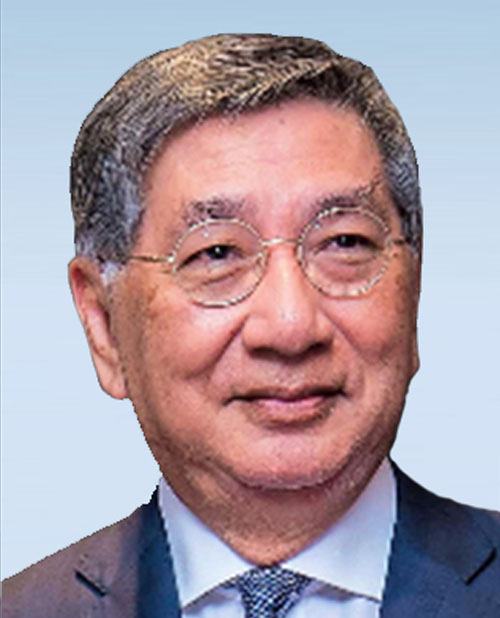 K. MINH DANG, MEMBERMinh Dang is the Senior Partner of YKVN and has 40 years of experience in international matters. Minh heads up YKVN’s international arbitration practice where he focuses on complex Vietnam related disputes, often partnering with major international firms and regional firms. His experience includes disputes in the areas of oil & gas taxation, oil & gas investment, outbound telecom investments, pharmaceutical manufacturing investments, real estate investments, insurance and construction projects. Minh has been active in Vietnam for 25 years, since 1994. He led the legal team advising Vietnam in the London Club restructuring of Vietnam’s commercial debts that closed in 1998 with Vietnam’s maiden issuance of international bonds. He has also been advising Petrovietnam in international matters since the late 90’s. Minh has been individually recognized by leading professional publications as a “Vietnam expert” for many years. Minh is fluent in English, French and Vietnamese. 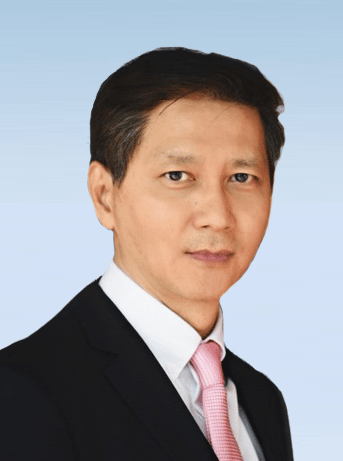 CHAN LENG SUN, SC, MEMBERLeng Sun was appointed a Senior Counsel of the Supreme Court of Singapore in 2011. He is a member of the Singapore International Arbitration Centre Court of Arbitration He is the former Global Head of Arbitration of an international law firm and the Immediate Past President of the Singapore Institute of Arbitrators (SIArb). He is the Deputy Chairman of the SGX Appeals Board. Leng Sun is qualified in Malaysia, Singapore and England. He has a broad commercial practice that covers technical disputes, maritime law (including sea, air and land transportation), international trade, insurance and company law. Leng Sun has acted as counsel or sat as arbitrator in arbitrations seated in Singapore, Hong Kong SAR, China, Korea, Malaysia, London and USA under ad hoc and institutional rules such as SIAC, ICC, SCMA, LMAA, ICDR, CIETAC, HKIAC, AIAC and KCAB rules. He is a Chartered Arbitrator. He is a Chairperson of the arbitration panel jointly appointed by the EU and Korea under the protocol on cultural cooperation of the Korea-EU FTA. Leng Sun had also served as a legal officer of the United Nations Compensation Commission in Geneva. Leng Sun is the author of the book, Singapore Law on Arbitral Awards and Co-Editor of Conflict of Laws in Arbitration. Leng Sun is the Singapore country contributor to Tetley’s Marine Cargo Claims (4th Ed). He has contributed chapters for numerous treatises, such as The Role of Arbitration in Shipping Law, published by Oxford University Press (Goldby and Mistellis eds, 2016), The Developing World of Arbitration, published by Hart Publishing (Reyes and Gu eds, 2018) and ASEAN and the Belt and Road Initiative, published by Academy Publishing (Bitas ed, 2021). 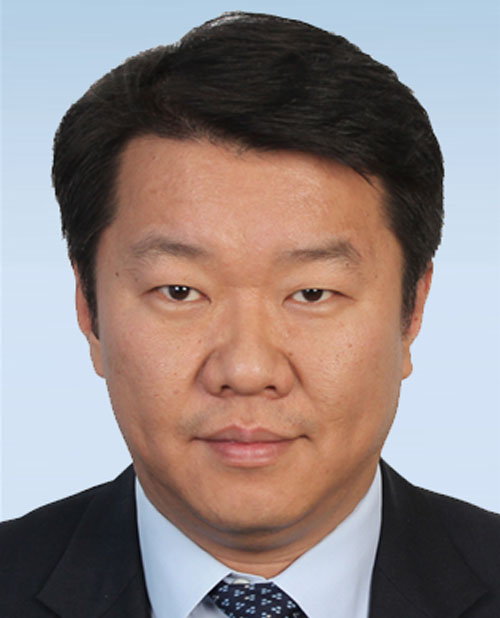 LIJUN CAO, MEMBERLijun Cao is licensed to practice law in China and the State of New York. He has extensive experience in international arbitration and commercial litigation and has represented clients in over 300 commercial arbitration cases. He also handles investment arbitration. Lijun is a Member of the SIAC Court of Arbitration, a Member of the Advisory Committee of CRCICA, a Vice Chair of the Arbitration and ADR Committee of ICC China, and a Vice Chair of the Arbitration and Lawyer Mediation Committee of the All China Lawyers Association (ACLA). Lijun is also an experienced arbitrator. He sits on the panel of arbitrators of several arbitral institutions, including CIETAC, BAC, HKIAC, SIAC, AIAC, ICDR, WIPO, etc. Lijun has received numerous awards and recognitions from legal media and directories. Since 2014, Chambers Global has continuously ranked Lijun as a “Band 1” international arbitration lawyer. 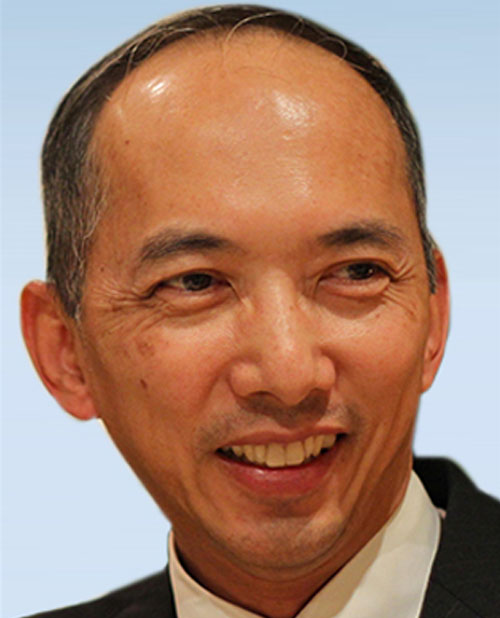 LAWRENCE BOO, MEMBERLawrence Boo is a pioneer in the development of Singapore arbitration. He served as the first Chief Executive Officer and Registrar of SIAC (1991-1996) and was recalled to serve SIAC from 2004 to 2009 as the Deputy Chairman. Boo is one of Singapore’s leading international arbitrators, having sat as arbitrator in more than 300 cases and written numerous awards. His cases included those administered by the AAA, ICC, ICSID, CIETAC, SIAC, LCIA, KLRCA, BANI, HKIAC and ad hoc arbitrations. He is designated by Singapore to the ICSID Panel of Arbitrators (Dec 2013-Dec 2019).  NIGEL BLACKABY KC, MEMBERNigel Blackaby QC is a partner of Freshfields Bruckhaus Deringer in Washington DC and global head of the firm’s international arbitration group. He has acted as counsel and arbitrator in over 100 ad hoc and institutional arbitrations (including over 40 investment arbitrations for investors and states). He has particular expertise in Latin America and energy and mining disputes. Recent cases include:  PIERRE BIENVENU, MEMBERPierre Bienvenu, Ad. E. is a disputes lawyer with more than 35 years’ experience practising in international commercial arbitration, commercial litigation, and constitutional law. He has acted as counsel or served as arbitrator in international arbitrations involving disputes in telecommunications, transportation, energy, international distribution and joint ventures, mergers and acquisitions, construction, pharmaceuticals, and foreign investment. A former co-chair of the IBA’s Arbitration Committee (2008-2009), he has served on the LCIA Court (2010-2015), of which he was a vice-president (2011-2015), and the ICC International Court of Arbitration (2015-2021). He was appointed by the Government of Canada to ICSID’s Panel of Arbitrators in 2021 for a six-year term. Mr Bienvenu has pleaded before the courts of Quebec, the Federal Court of Canada, and the Supreme Court of Canada. He was involved in numerous challenges to the constitutional validity of provincial and federal legislation and has extensive experience in public law litigation. He has participated in more than 15 appeals before the Supreme Court of Canada, representing government bodies, institutions, corporations, and individuals in a range of international, constitutional, and commercial law disputes, including representing the Attorney General of Canada in the landmark Reference re Secession of Quebec. Mr. Bienvenu practiced for more than 35 years at Norton Rose Fulbright Canada (previously Ogilvy Renault LLP) and served as global co-head of Norton Rose Fulbright’s international arbitration practice from 2011 to 2022. He withdrew from the partnership of Norton Rose Fulbright in June 2022 to focus on his practice as an international arbitrator and joined IMK LLP, a Montreal-based disputes firm, in July 2022. He is also a member of the roster of arbitrators of Arbitration Place, in Toronto. Mr Bienvenu is a Fellow of the American College of Trial Lawyers and the Chartered Institute of Arbitrators. He was awarded the distinction Advocatus Emeritus by the Quebec Bar in 2008, and the Paul-André Crépeau Medal by the Canadian Bar Association in 2013 for his contribution to the advancement of the international dimension of private law and commercial law in Canada.  YAS BANIFATEMI, MEMBERMs Yas Banifatemi is a founding partner of Gaillard Banifatemi Shelbaya Disputes. Prior to founding Gaillard Banifatemi Shelbaya Disputes, she served as Shearman & Sterling’s Global International Arbitration Practice Group Leader, Public International Law Team Leader and Lead Industry Coordinator for Energy. She is a former Vice-President of the ICC International Court of Arbitration, a former member of the LCIA Court and a member of the ICSID panel of arbitrators. 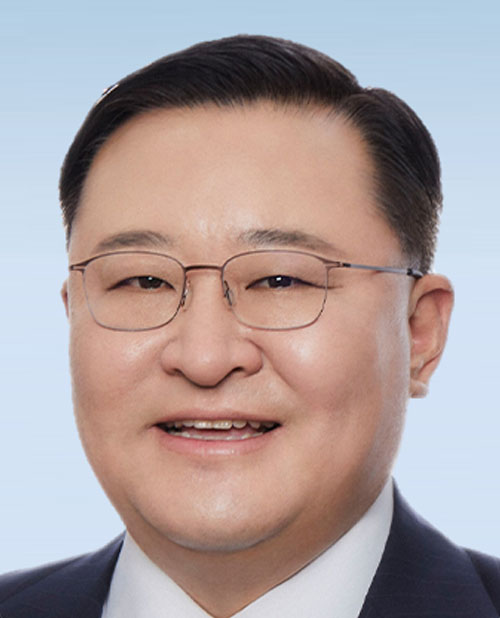 JOHN P. BANG, MEMBERMr John P Bang is a senior partner (foreign attorney) at Peter & Kim, a specialized law firm in international arbitration. He was previously the head and co-founder of the International Arbitration and Cross-Border Litigation Practice at Bae, Kim & Lee LLC.  DR CLAUDIA ANNACKER, MEMBERDr. Claudia Annacker is an independent arbitrator and counsel based in Paris. She specializes in international arbitration and public international law, in particular investor-State disputes, inter-State disputes, disputes involving international organizations and human rights disputes. Dr. Annacker has represented sovereign and private parties in more than 35 investment arbitrations, as well as in commercial and inter-State arbitrations. Dr. Annacker has also served as arbitrator in investment treaty and commercial arbitrations. She is a member of several arbitrator panels, including the ICSID Panel of Arbitrators and the SIAC Panel of Arbitrators. She is a member of the SIAC Court of Arbitration and the VIAC Board (President of the Investment Arbitration Committee). Dr. Annacker received a Ph.D. with high honors and a venia legendi et docendi (habilitation) for public international law from the University of Vienna. Dr. Annacker is an adjunct professor at the University of Vienna and has been a visiting professor at the Paris Ouest Nanterre La Défense University. She has published widely in the fields of international arbitration and public international law.  CATHERINE AMIRFAR, MEMBERCatherine Amirfar is a litigation partner at Debevoise & Plimpton LLP. She co-chairs the firm’s International Dispute Resolution Group and Public International Law Group.  JOSE AMADO, MEMBERMr. Jose Daniel Amado is a founding partner of Miranda & Amado in Lima and teaches international arbitration law at the Catholic University of Peru. His professional practice focuses on Corporate Law, Infrastructure Projects and International Arbitration. He has acted in some of the most important cross-border transactions and international disputes that have taken place in Peru in the last two decades.  OLUFUNKE ADEKOYA, MEMBERFunke Adekoya is a Senior Advocate of Nigeria and partner and head of the arbitration practice at ǼLEX, a Lagos Nigeria based law firm with offices in Accra, Ghana. She has dual nationality (Nigerian/British) and is dual qualified; in addition to having qualified as a legal practitioner in Nigeria in 1975, she was admitted as a solicitor in England and Wales in 2004 where she maintains a current practicing licence. She is a Chartered Arbitrator of the Chartered Institute of Arbitrators and a Governing Board Member of the International Council for Commercial Arbitration.  TOBY LANDAU KC, VICE PRESIDENTToby Landau KC is a barrister and arbitrator, and a member of the Bars of England & Wales, Singapore, New York, BVI and Northern Ireland (and the DIFC). He practices from Duxton Hill Chambers in Singapore, and as a Sole Practitioner in London. As Arbitrator, he has sat as President and Co-Arbitrator in numerous Investor-State and commercial disputes worldwide, under most of the leading institutional and ad hoc rules. As Counsel, he has argued hundreds of major international investor-State and commercial arbitrations, as well as many ground-breaking arbitration cases in Court (including Halliburton v Chubb; Enka v Chubb; Dallah v Pakistan; Jivraj v Hashwani; Ust-Kamenogorsk v AES; IPCO v NNPC in the UK Supreme Court, and First Media v Astro in the Courts of Singapore and Hong Kong). He is Visiting Professor at Kings College London; a Court Member of SIAC; previously LCIA Court Member and SCC Board Member; UK delegate to the UNCITRAL Working Group on Arbitration (1994-2013); and a draftsman of the English Arbitration Act 1996 as well as many other laws and arbitration rules in several countries. Since April 2012, he has been a member of the Panel of Advisors of the Attorney-General of Singapore. 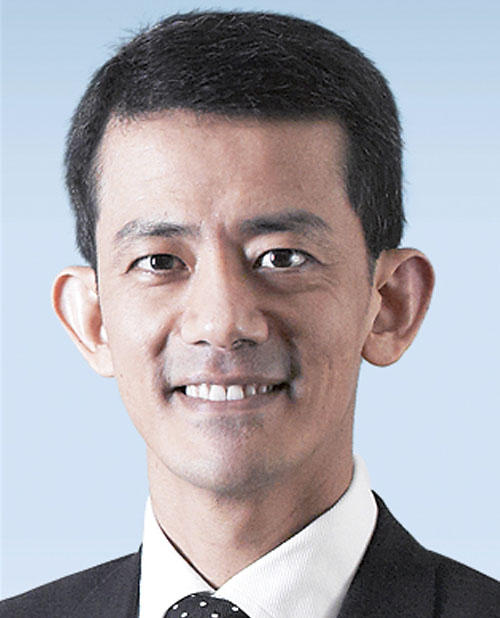 CAVINDER BULL, SC, VICE PRESIDENTMr Cavinder Bull, SC is a Vice-President of the Court of Arbitration and the Chief Executive Officer of Drew & Napier LLC. He is also a member of the Governing Board of the International Council for Commercial Arbitration (ICCA) and Vice-President of the Asia Pacific Regional Arbitration Group. He was Deputy Chairman of the SIAC from October 2010 to April 2017. 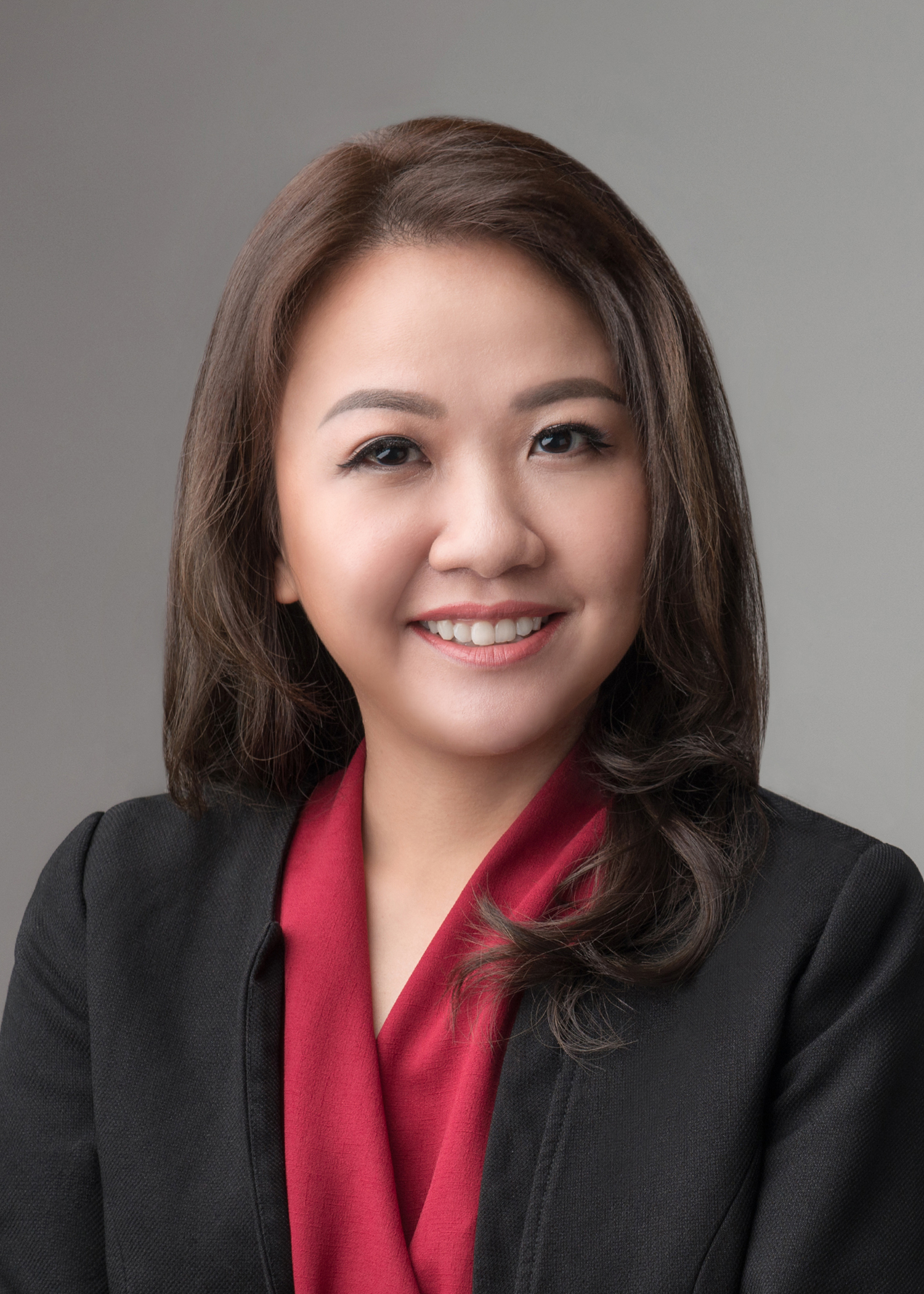 DUONG HOANG, DEPUTY COUNSELDuong is qualified to practice law in Vietnam. Prior to joining SIAC, Duong worked as a counsel at a leading international arbitration centre in Vietnam where she administered domestic and international arbitration matters conducted under the auspice of the arbitration law of Vietnam and UNCITRAL Arbitration Rules. She thereafter practiced international arbitration with the Singapore office of a leading Vietnam-based law firm where she focused on Vietnam-related matters in construction and petroleum sectors. Duong speaks Vietnamese and English.  CHEN WU, ASSOCIATE COUNSELChen graduated from Fudan University (Bachelor’s degree in law), Université Paris 1 Panthéon-Sorbonne (LL.M. in International Trade Law) and Georgetown University (LL.M. in International Business and Economic Law).  JAYDEN ZHAO, ASSOCIATE COUNSELJayden graduated with an LL.B. (Hons) from the Singapore Management University School of Law. He is admitted to practice as an Advocate & Solicitor of the Supreme Court of Singapore. Prior to joining SIAC, he practiced arbitration and litigation at a law firm in Singapore. 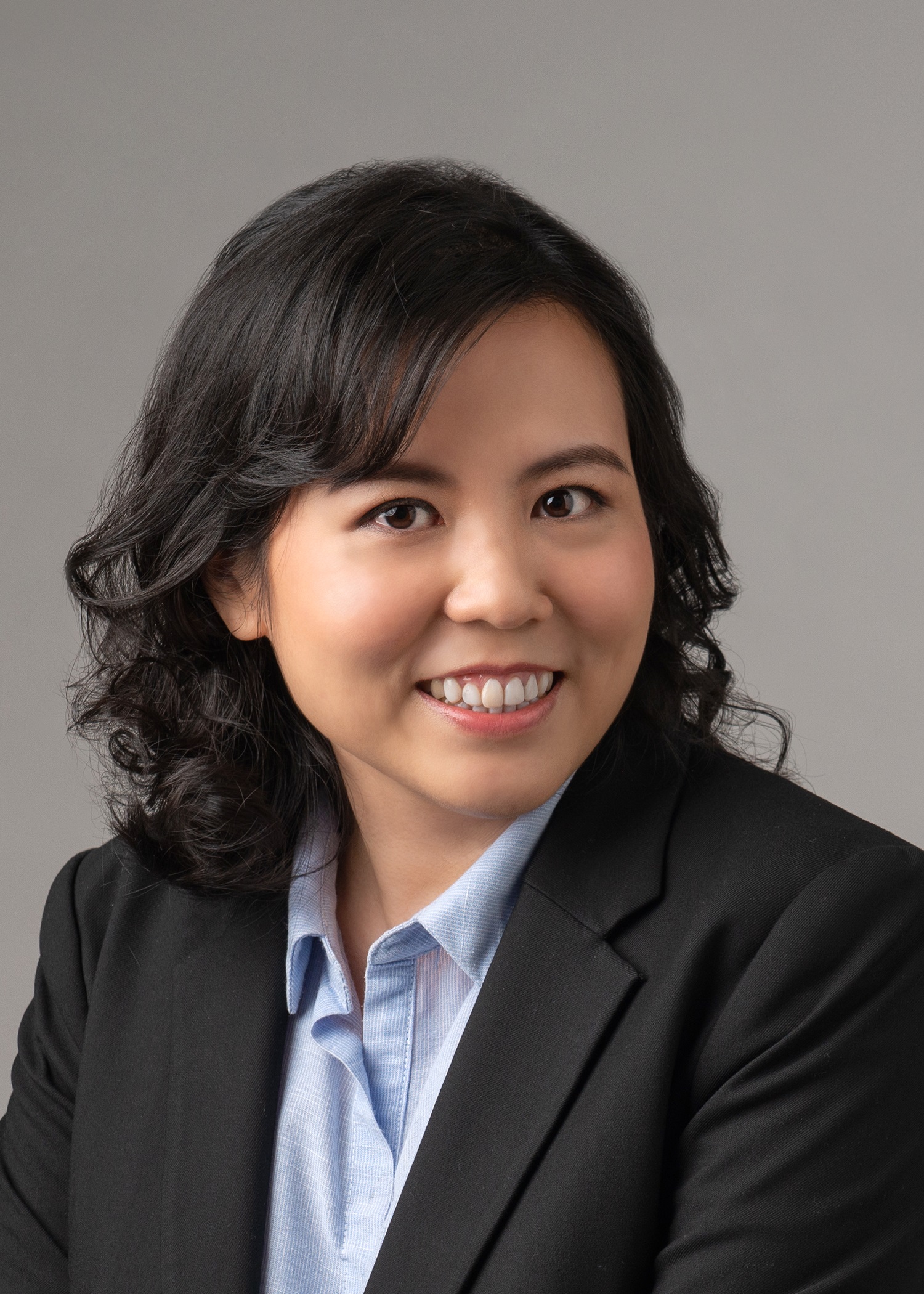 LYNNETTE LEE, COUNSELLynnette graduated with an LL.B. (Hons) from Monash Law School, Melbourne, Australia and holds a Bachelor of Communication Studies (Hons) from the Nanyang Technological University in Singapore. She is admitted to practice as an Advocate & Solicitor of the Supreme Court of Singapore. During law school, Lynnette participated in moot court competitions, which included representing Monash at the FDI Moot. 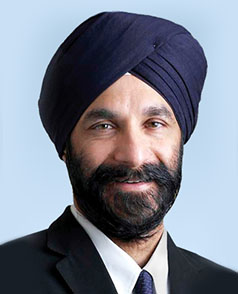 DAVINDER SINGH, SC, CHAIRMANMr Davinder Singh, SC is the Chairman of the Board of Directors of SIAC and the Executive Chairman of Davinder Singh Chambers LLC. Mr Singh’s legal experience spans four decades. He has an active international arbitration practice involving complex commercial disputes, international clients and multiple jurisdictions. He has advised and/or acted in numerous institutional and ad hoc arbitrations. At the Chambers Asia-Pacific Awards 2014, Mr Singh was conferred the “Outstanding Contribution to the Legal Profession” Award. He is the only litigator in Singapore to be ranked by Chambers & Partners as a “Star Individual” for thirteen years running from 2011 to 2023. Mr Singh is also recognised in the “Hall of Fame” for both Dispute Resolution and International Arbitration by The Legal 500 Asia Pacific. According to Chambers and Legal 500 researchers, Mr Singh is “number one in Singapore”; “a bona fide star performer”; “in a class of his own” and a “standout figure in arbitration as well as litigation; “an exceptionally good lawyer – always top of the tree.” Mr Singh also sits on the Board of Directors of the Singapore International Mediation Centre. He was in the first batch of Senior Counsel appointed by the Singapore Supreme Court in 1997. |
